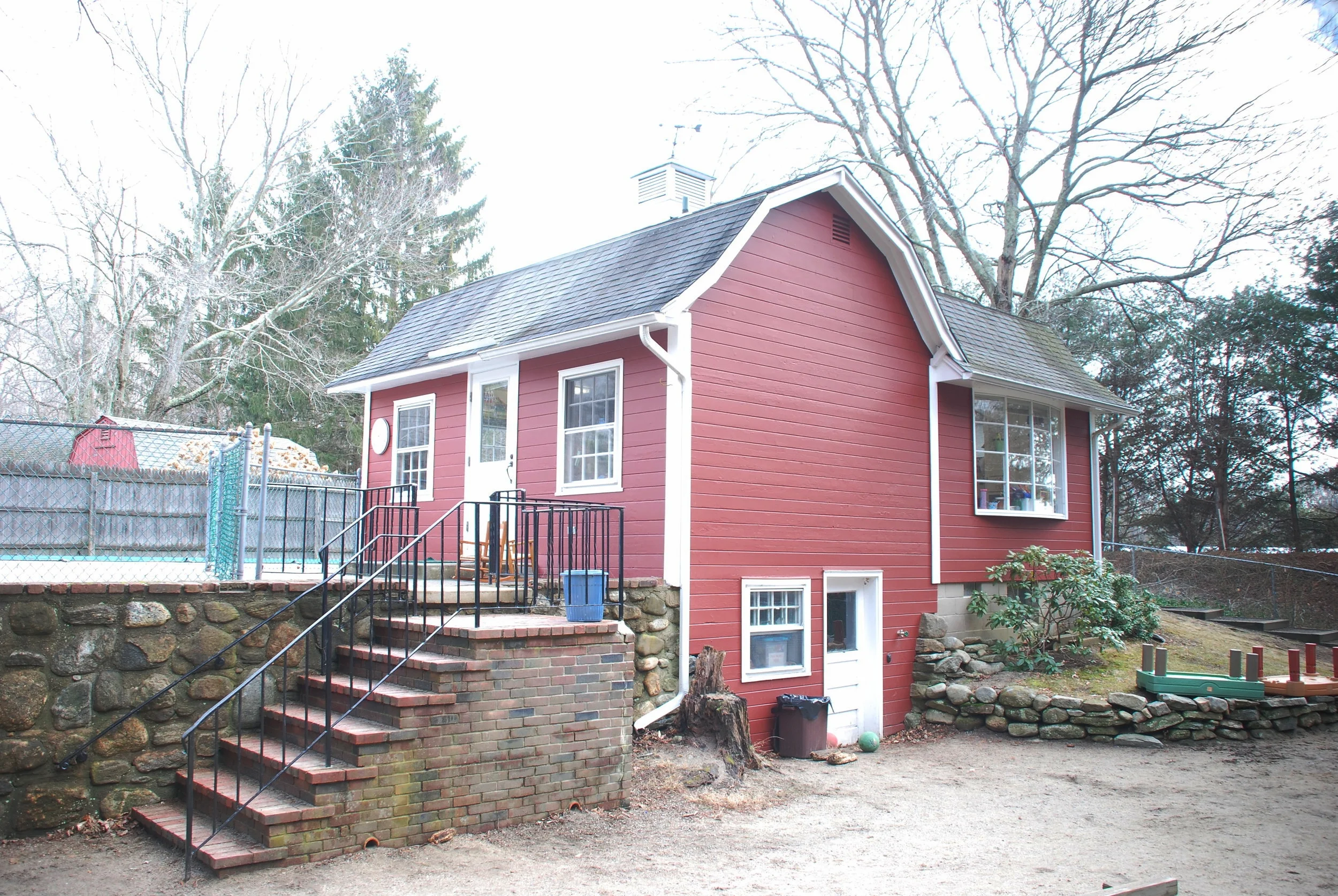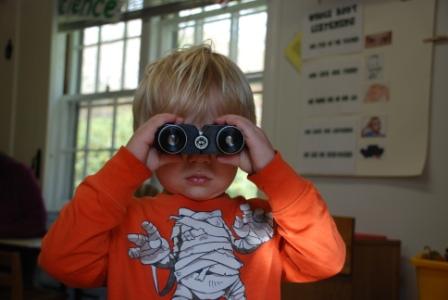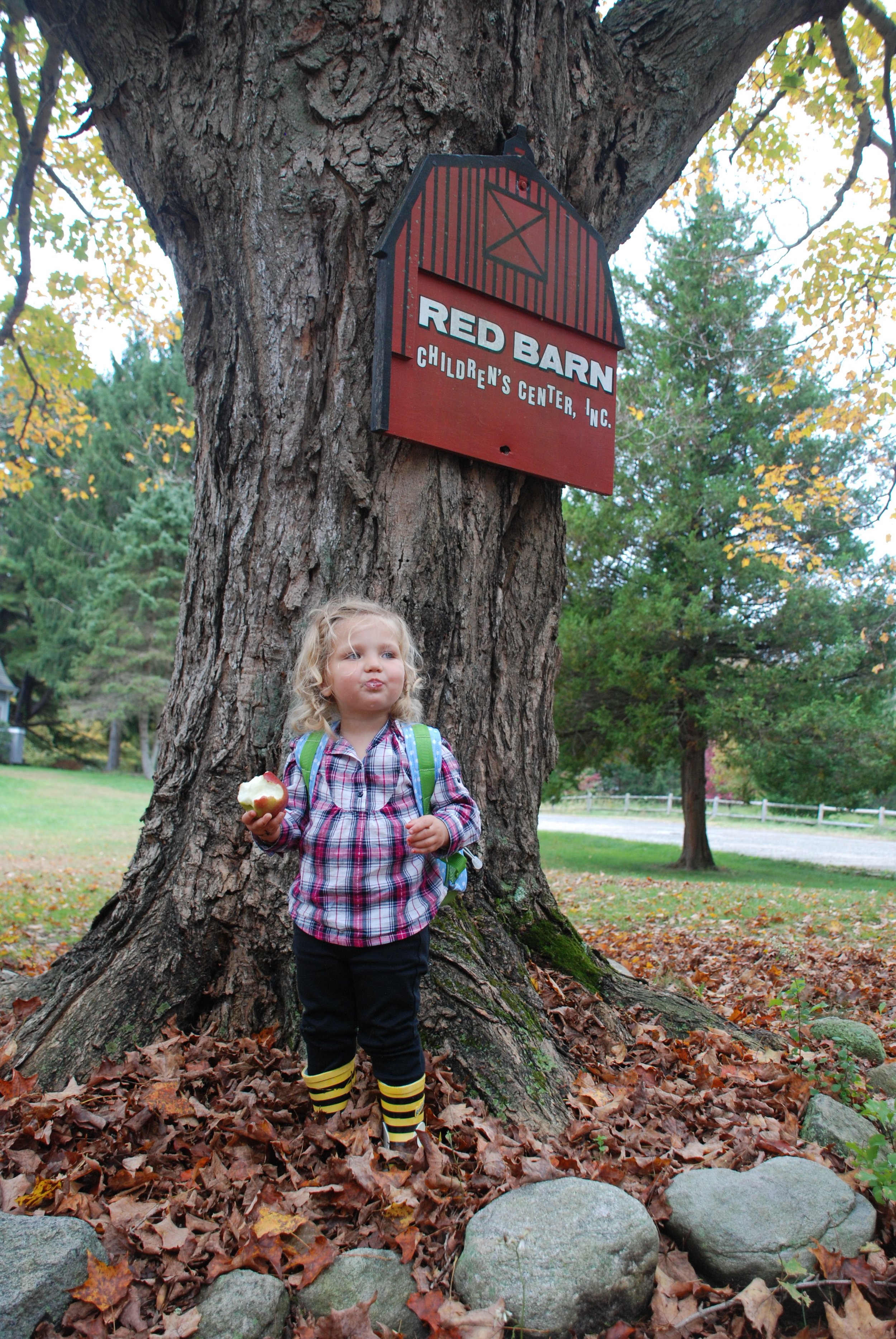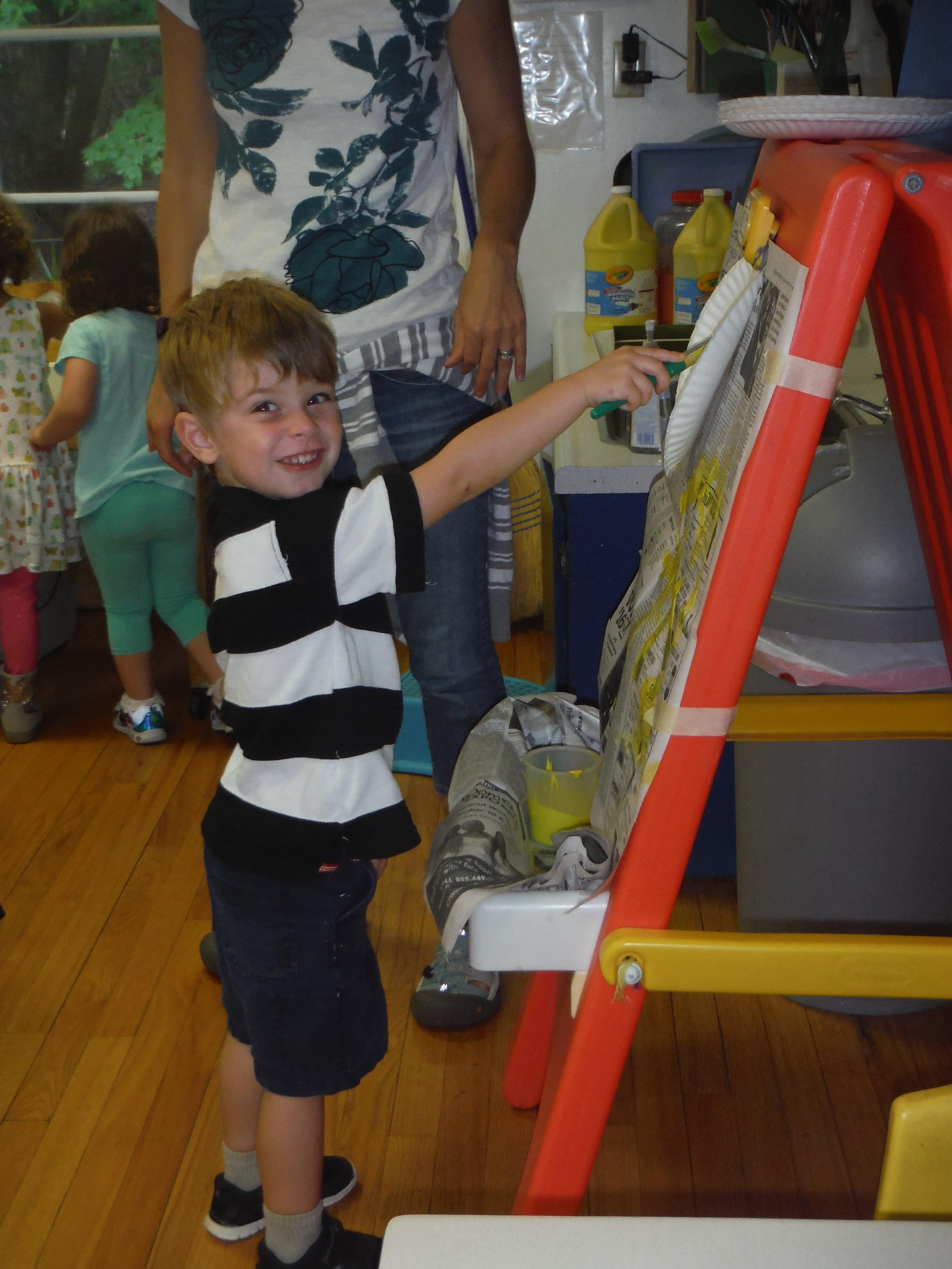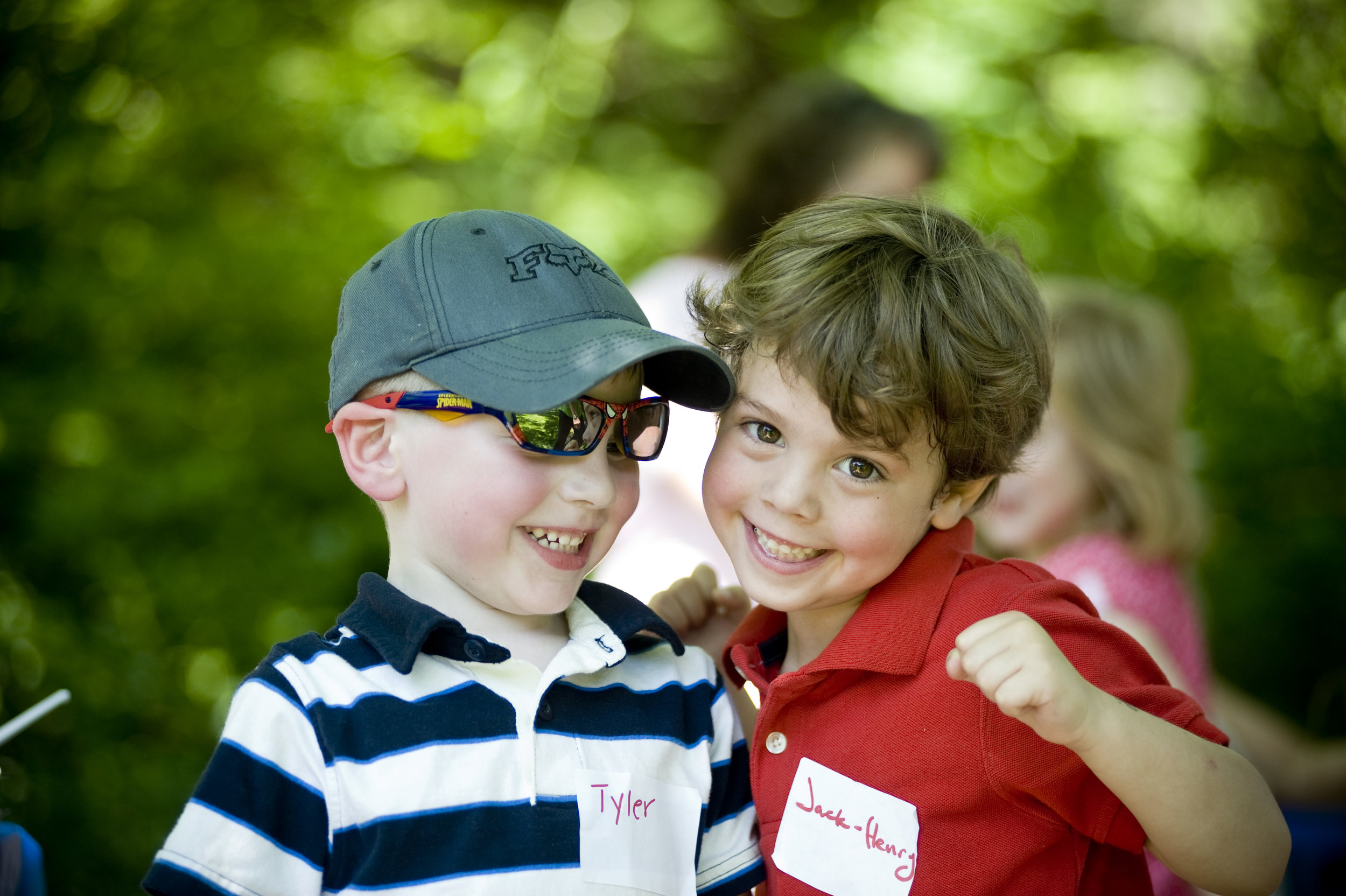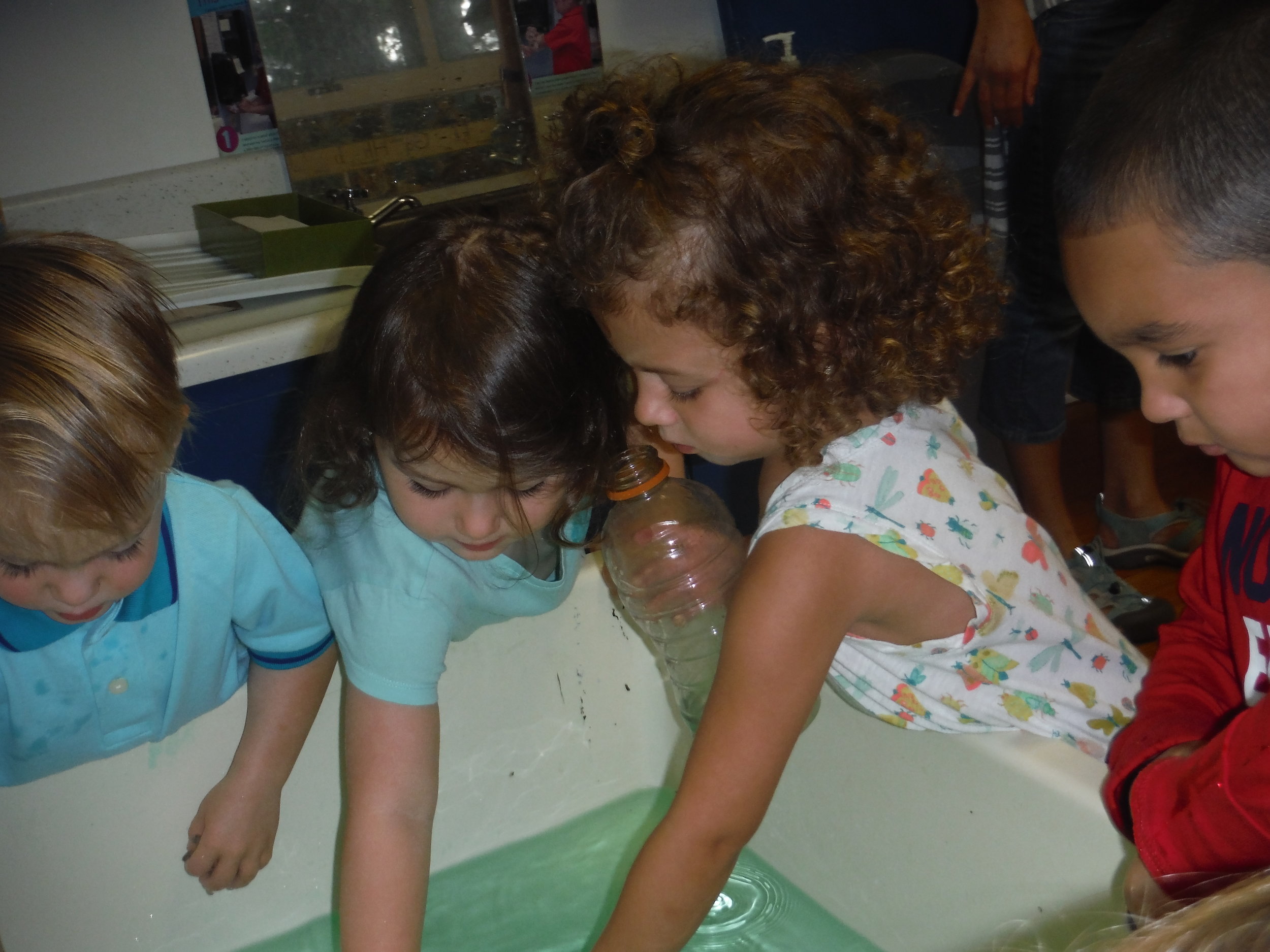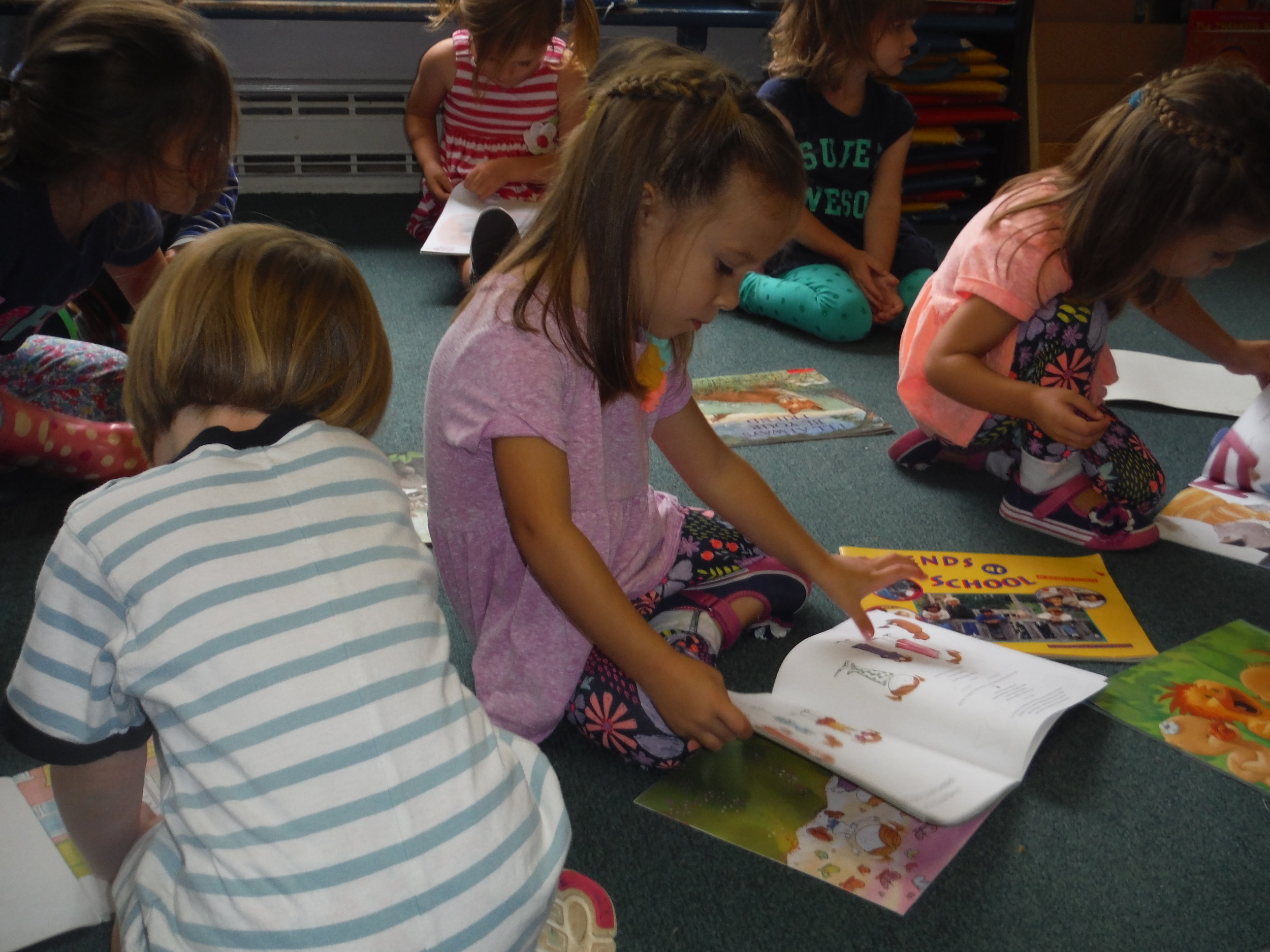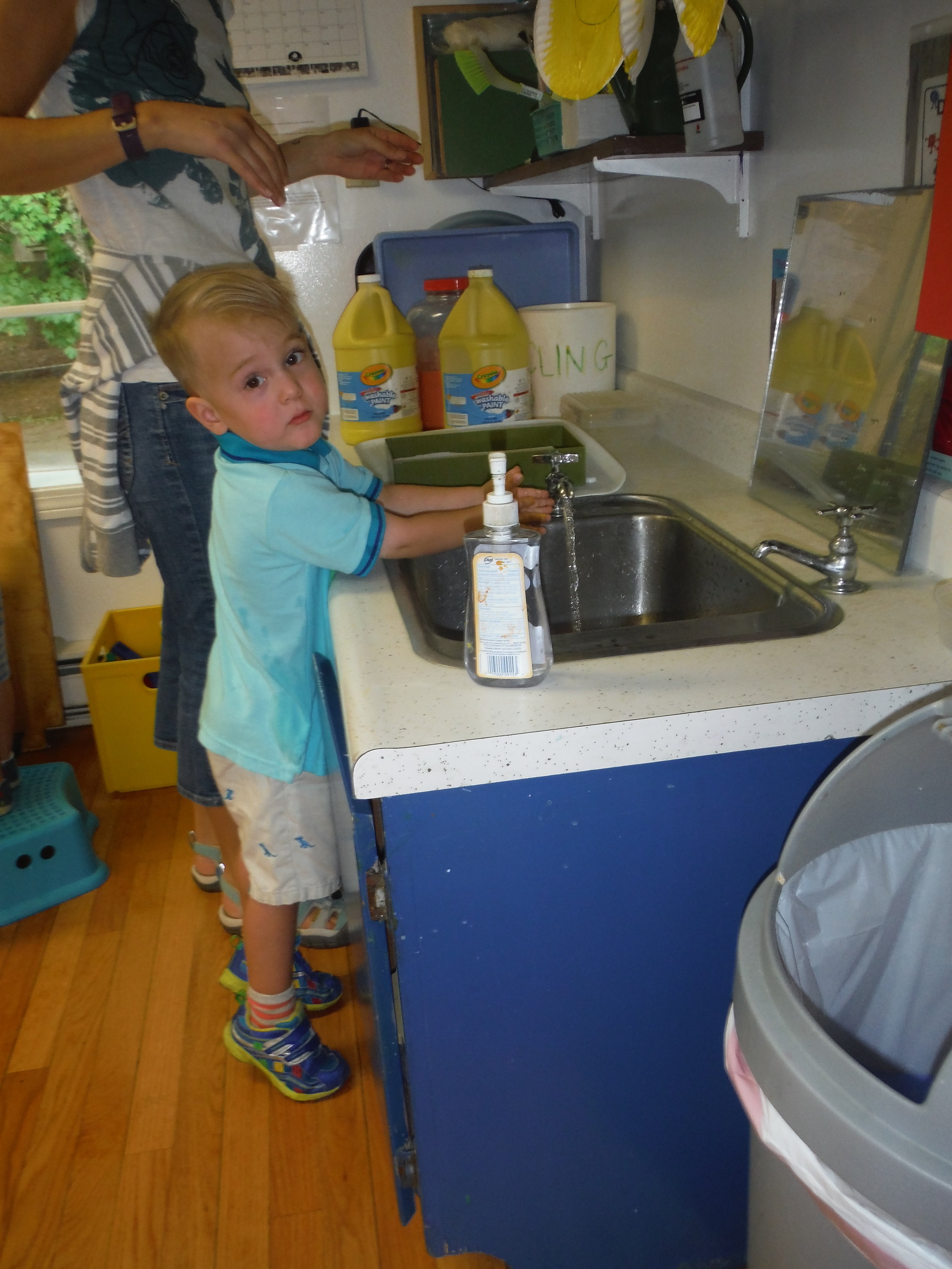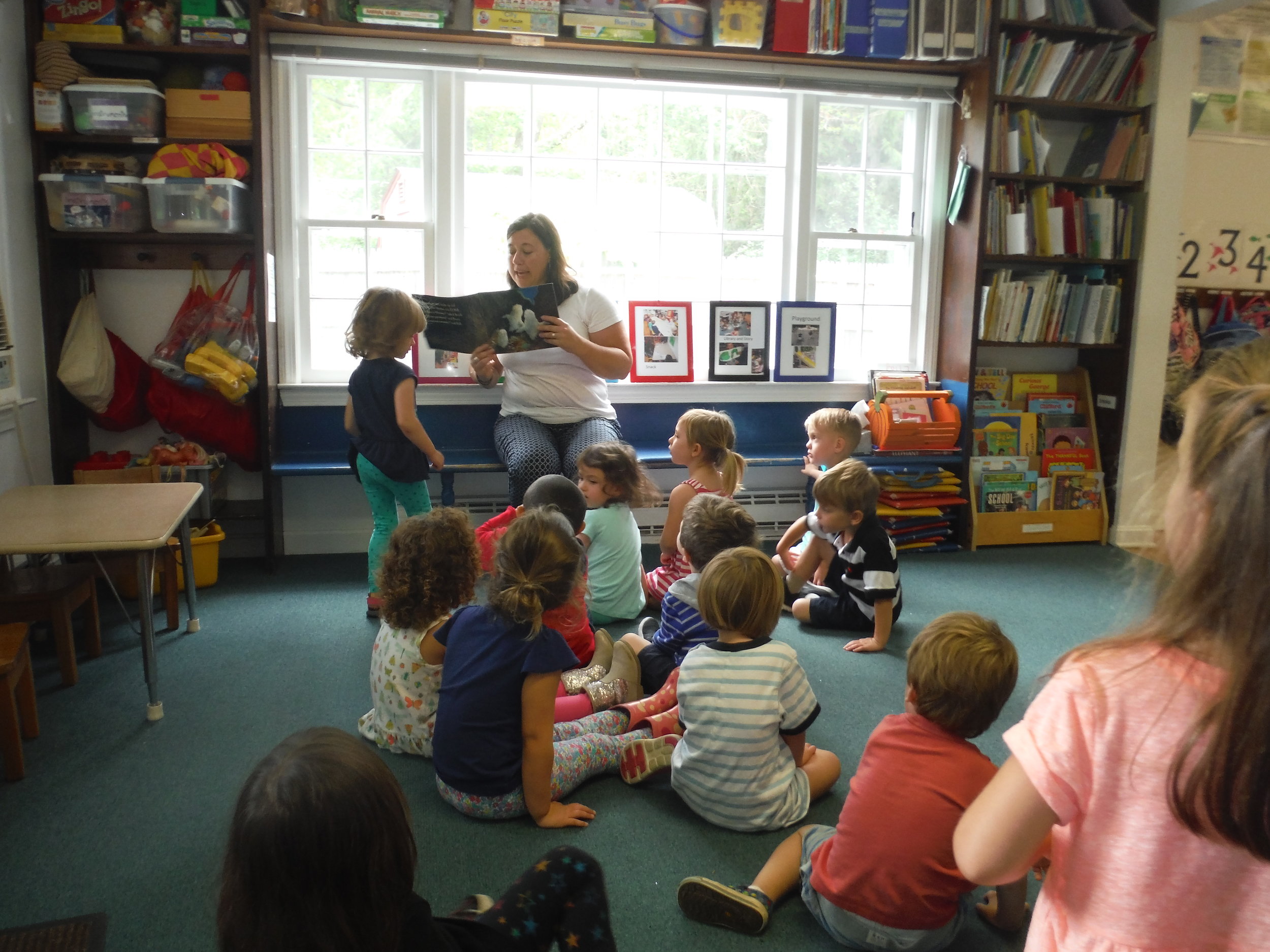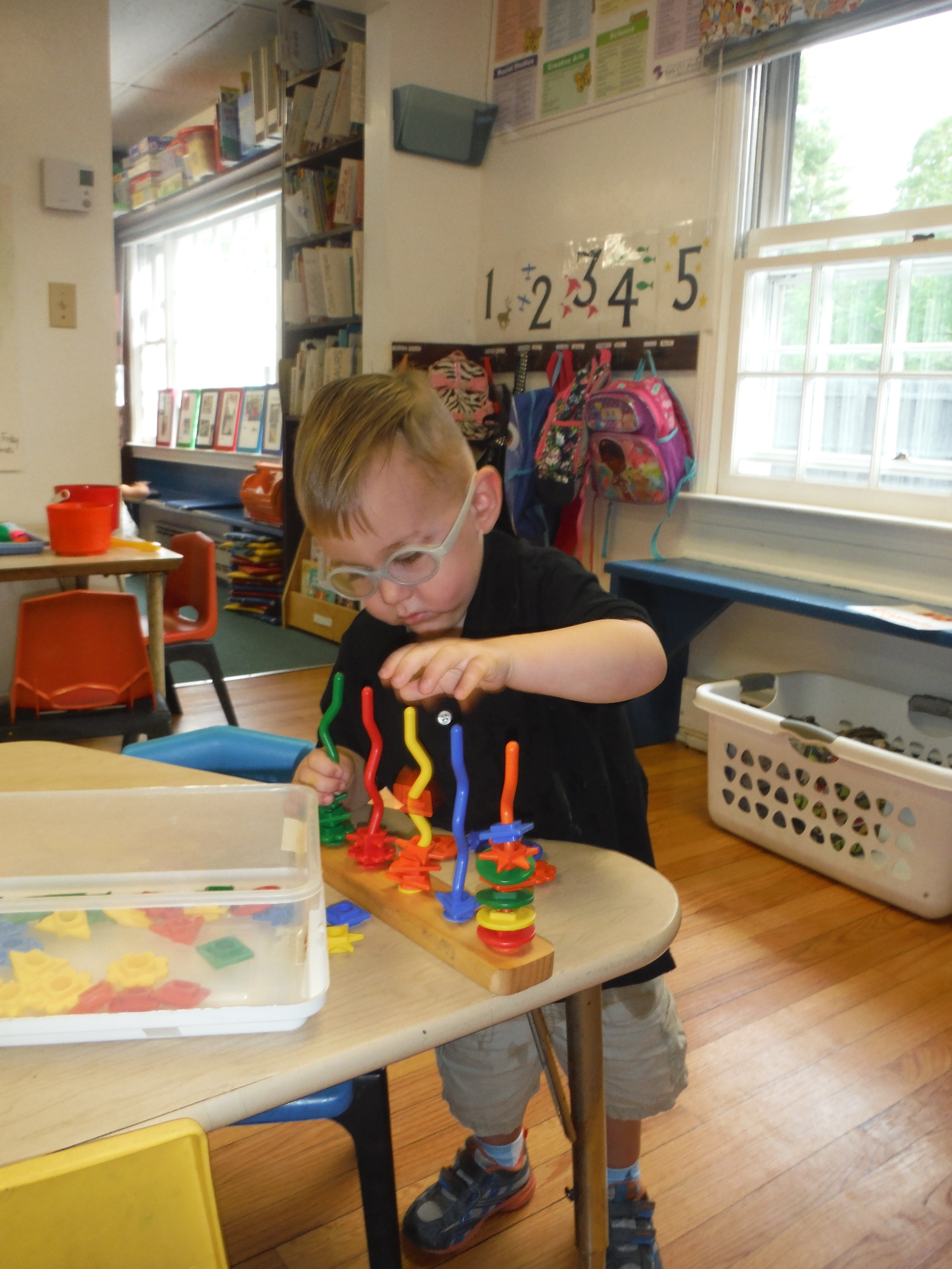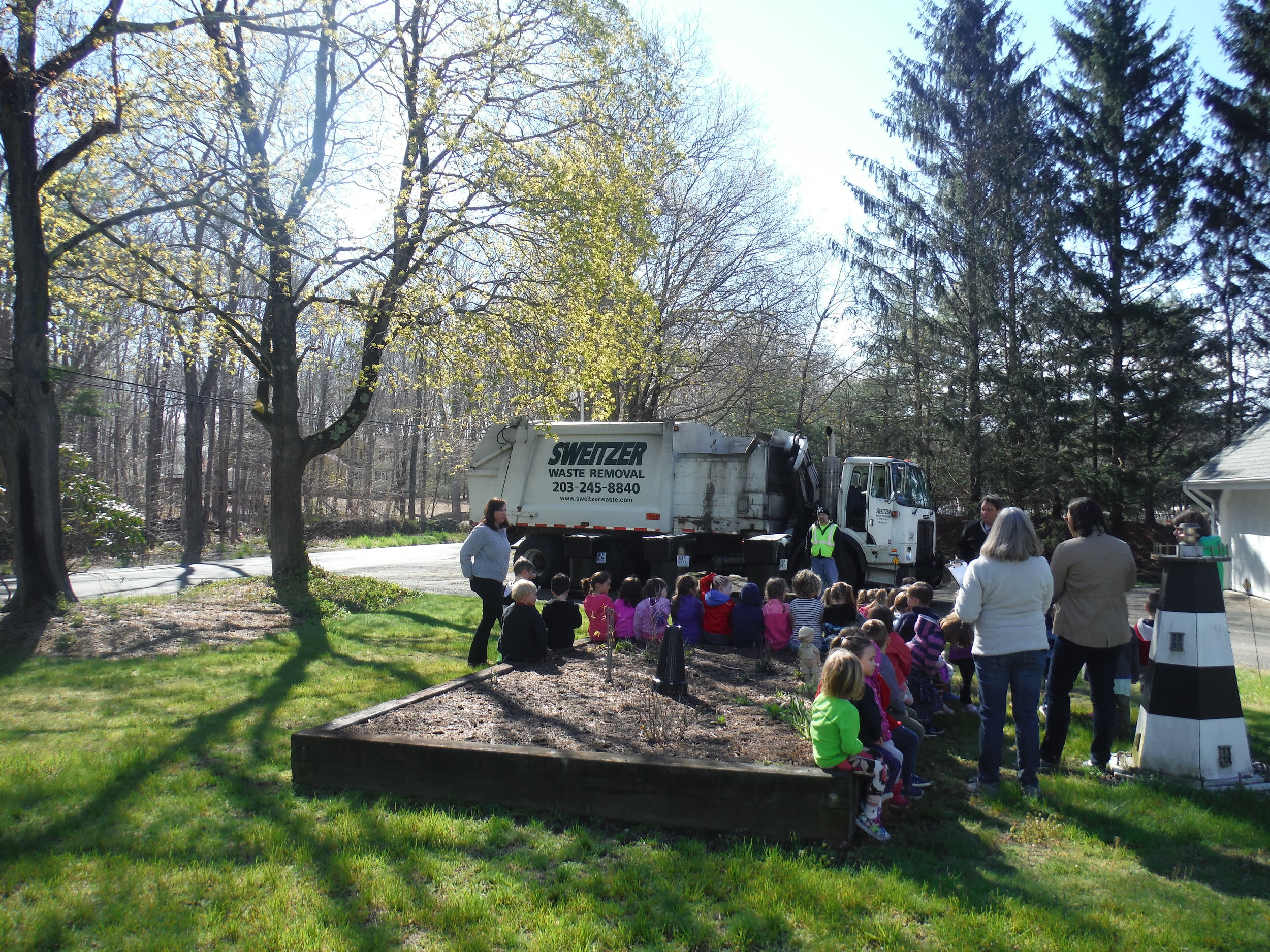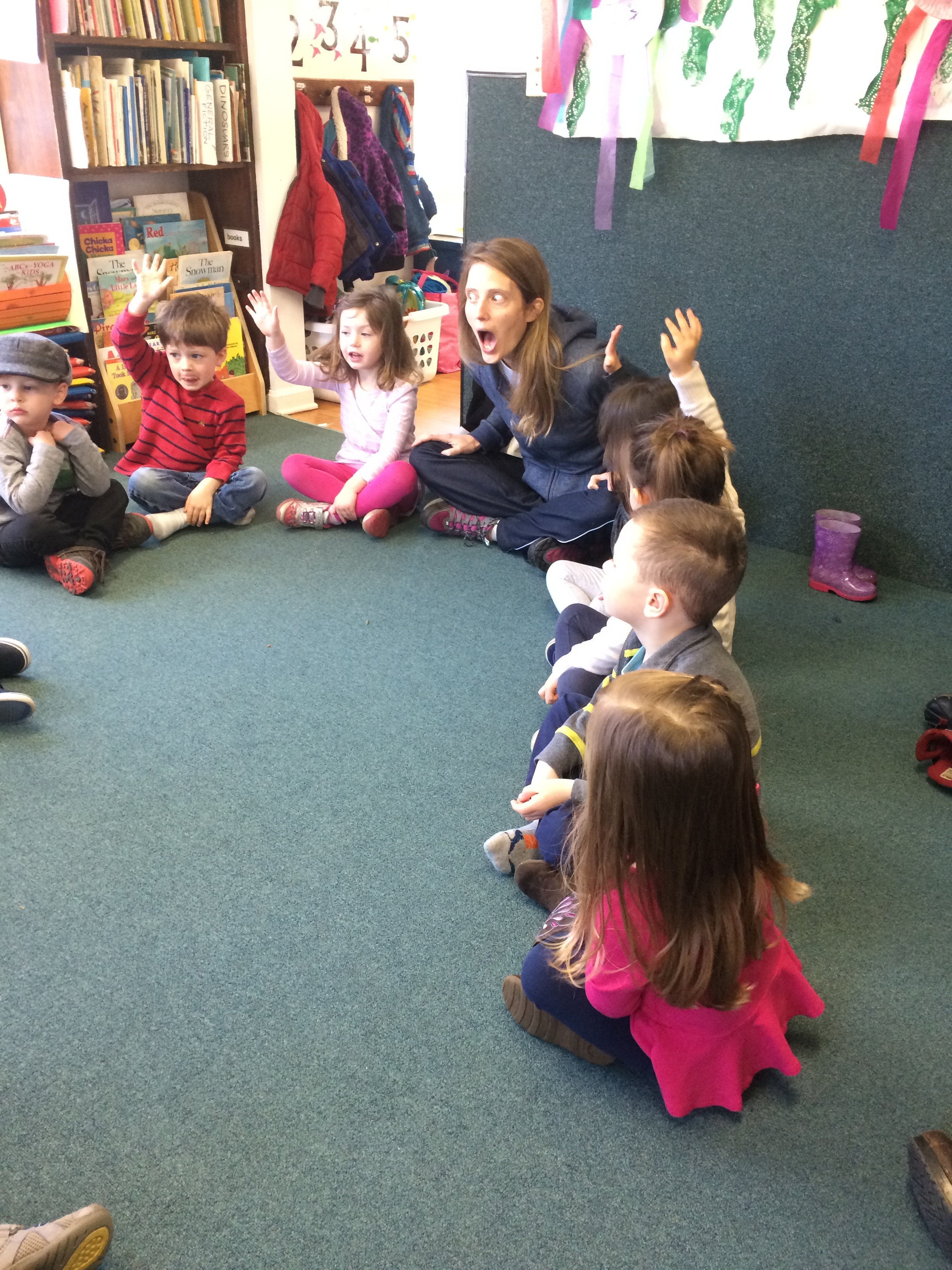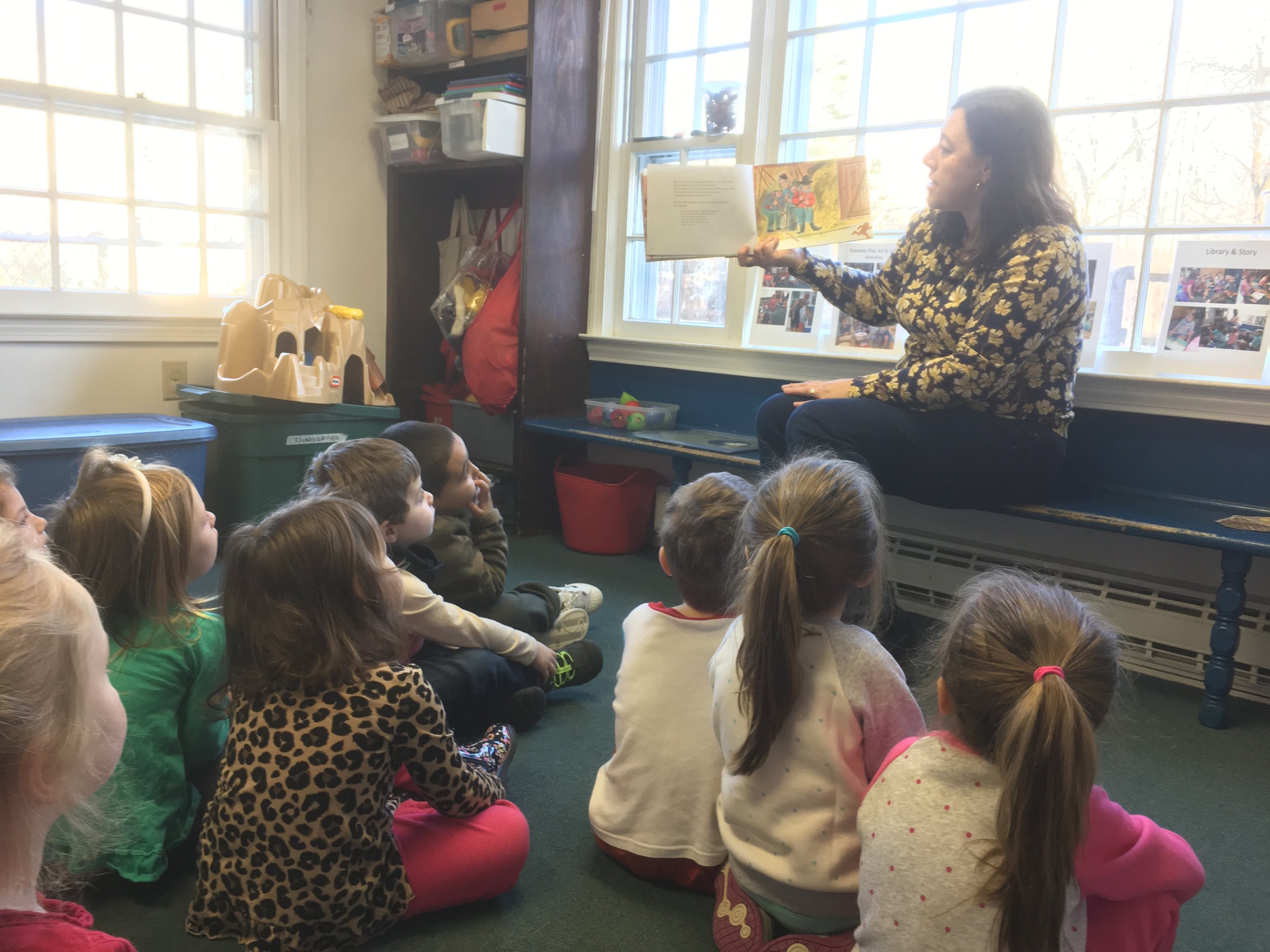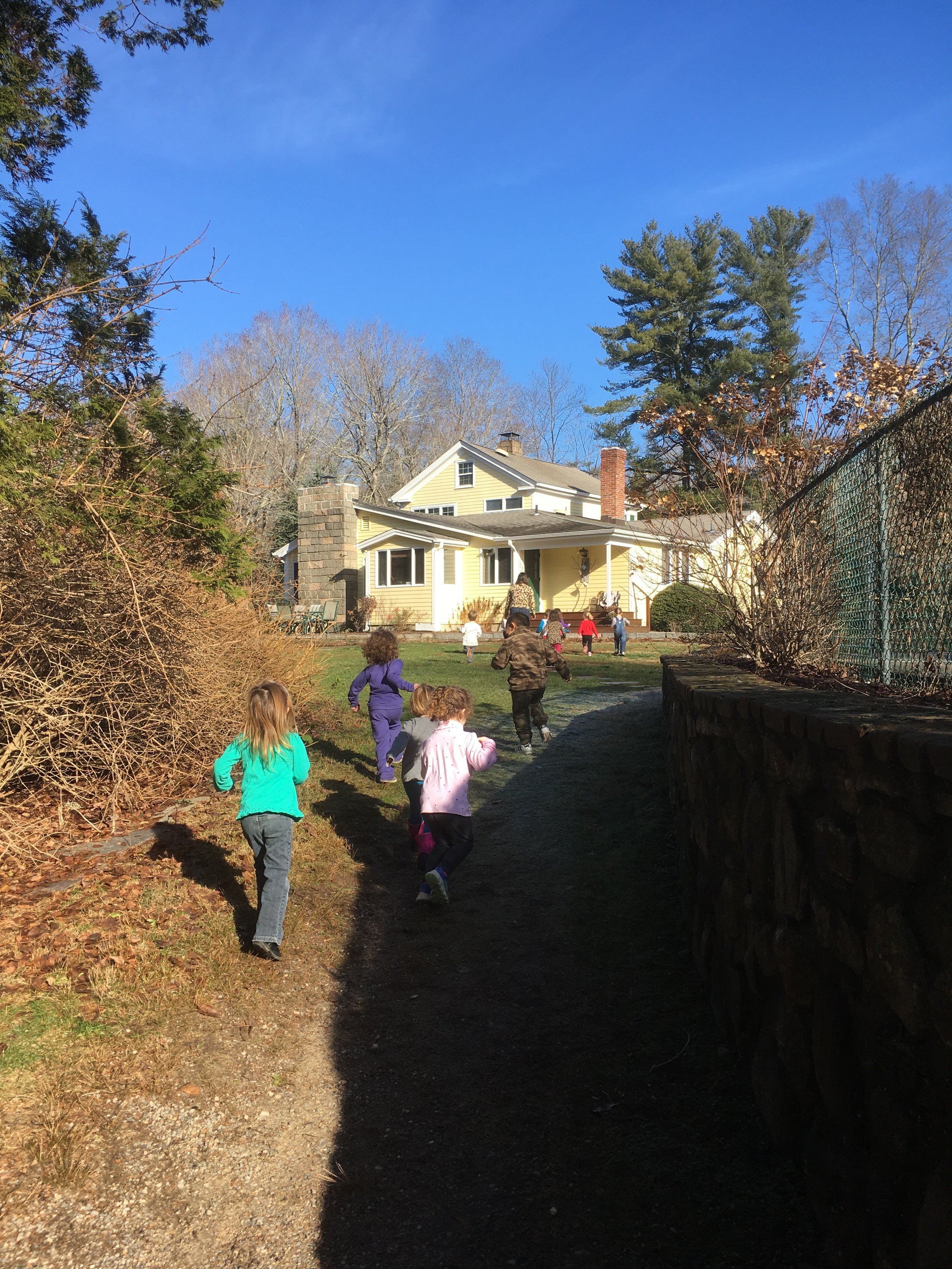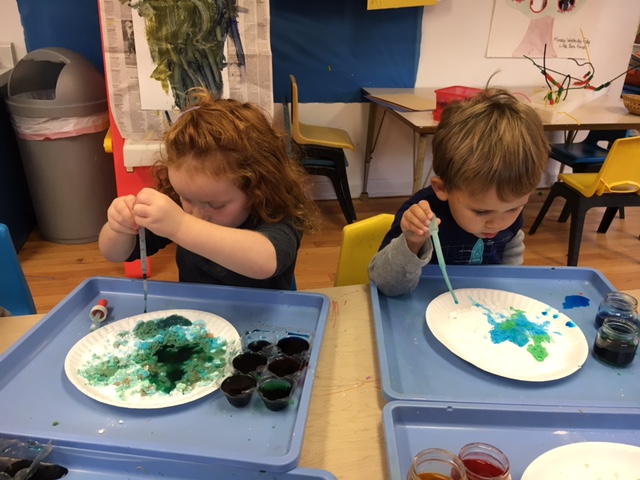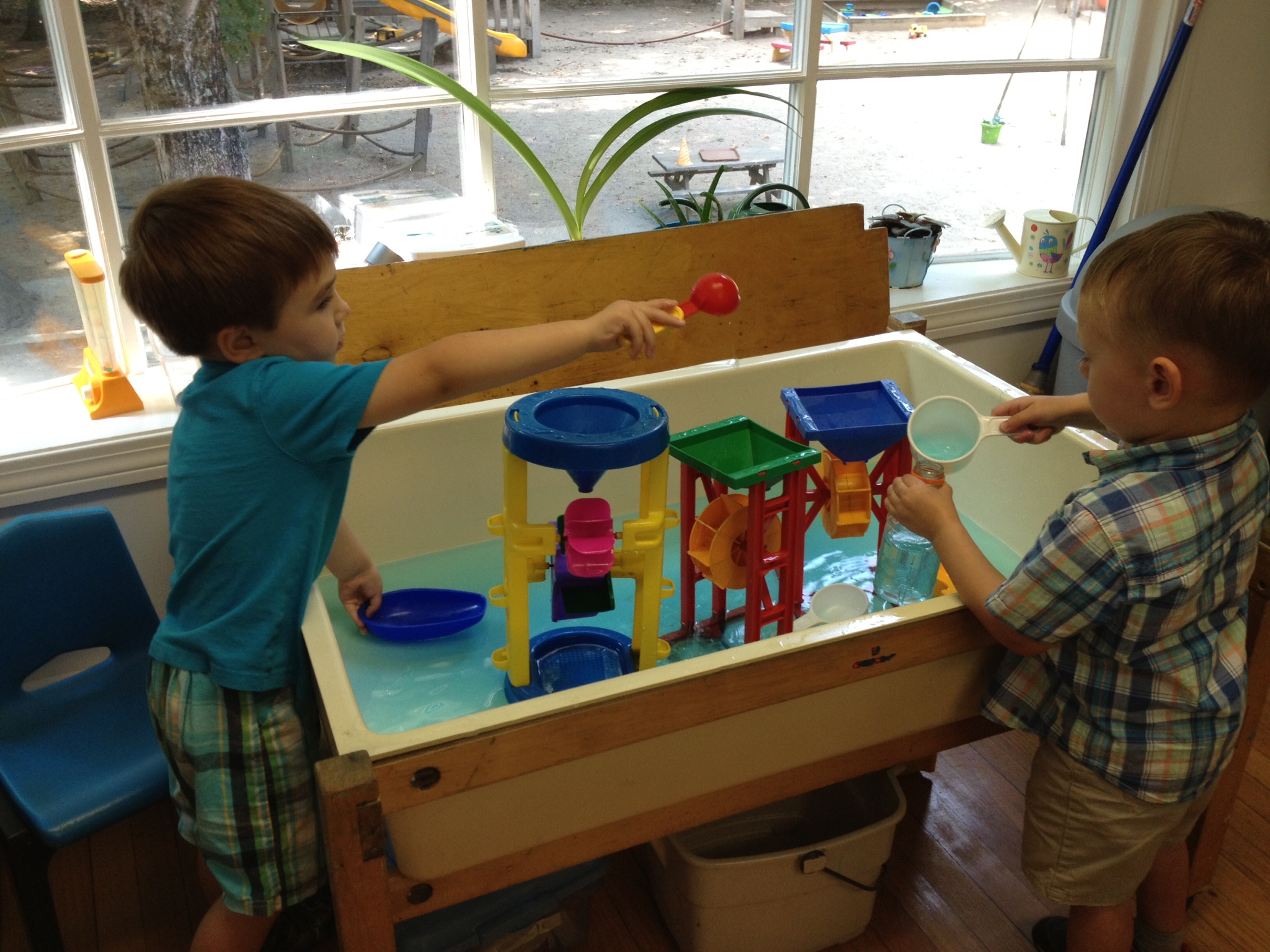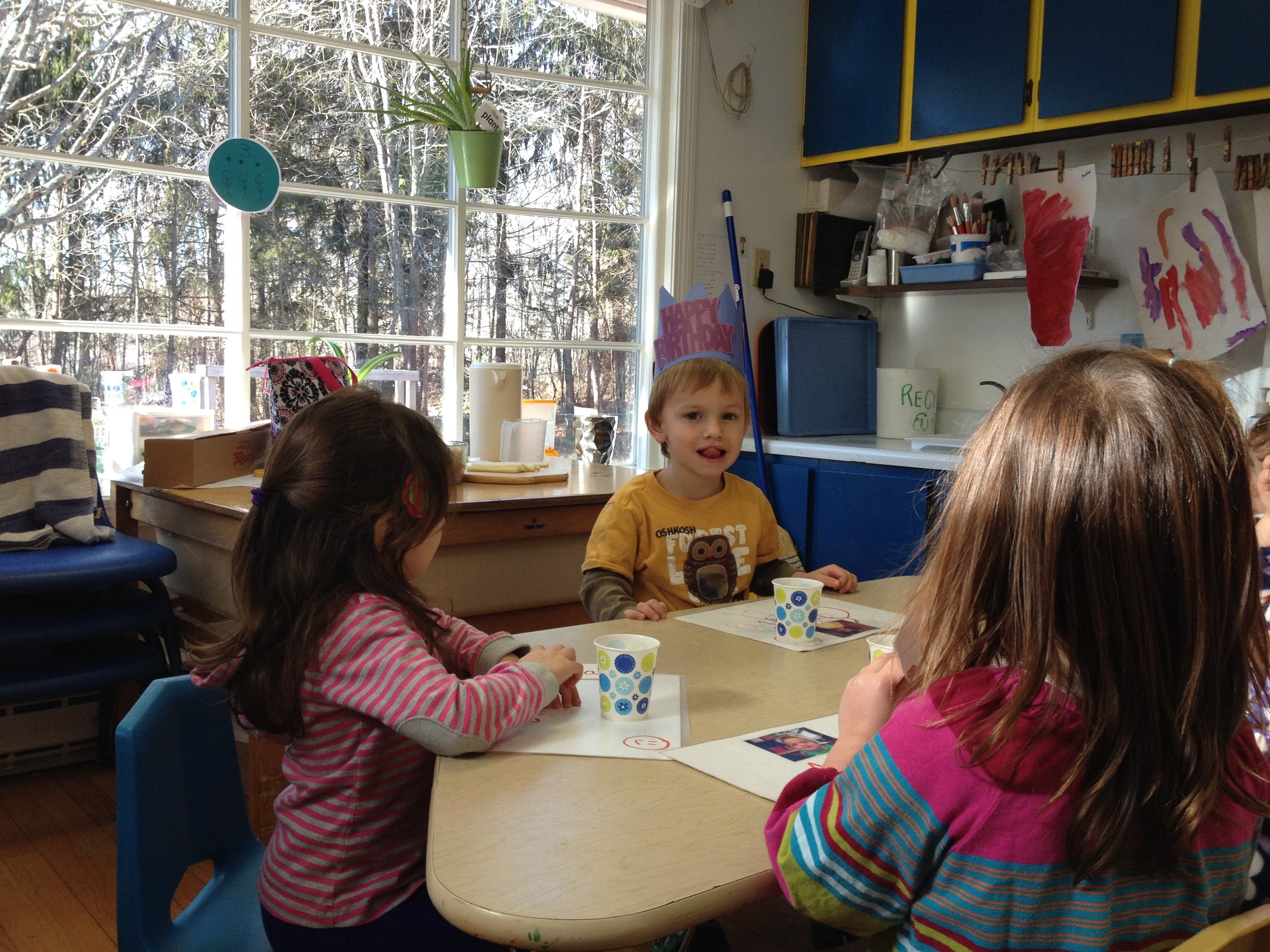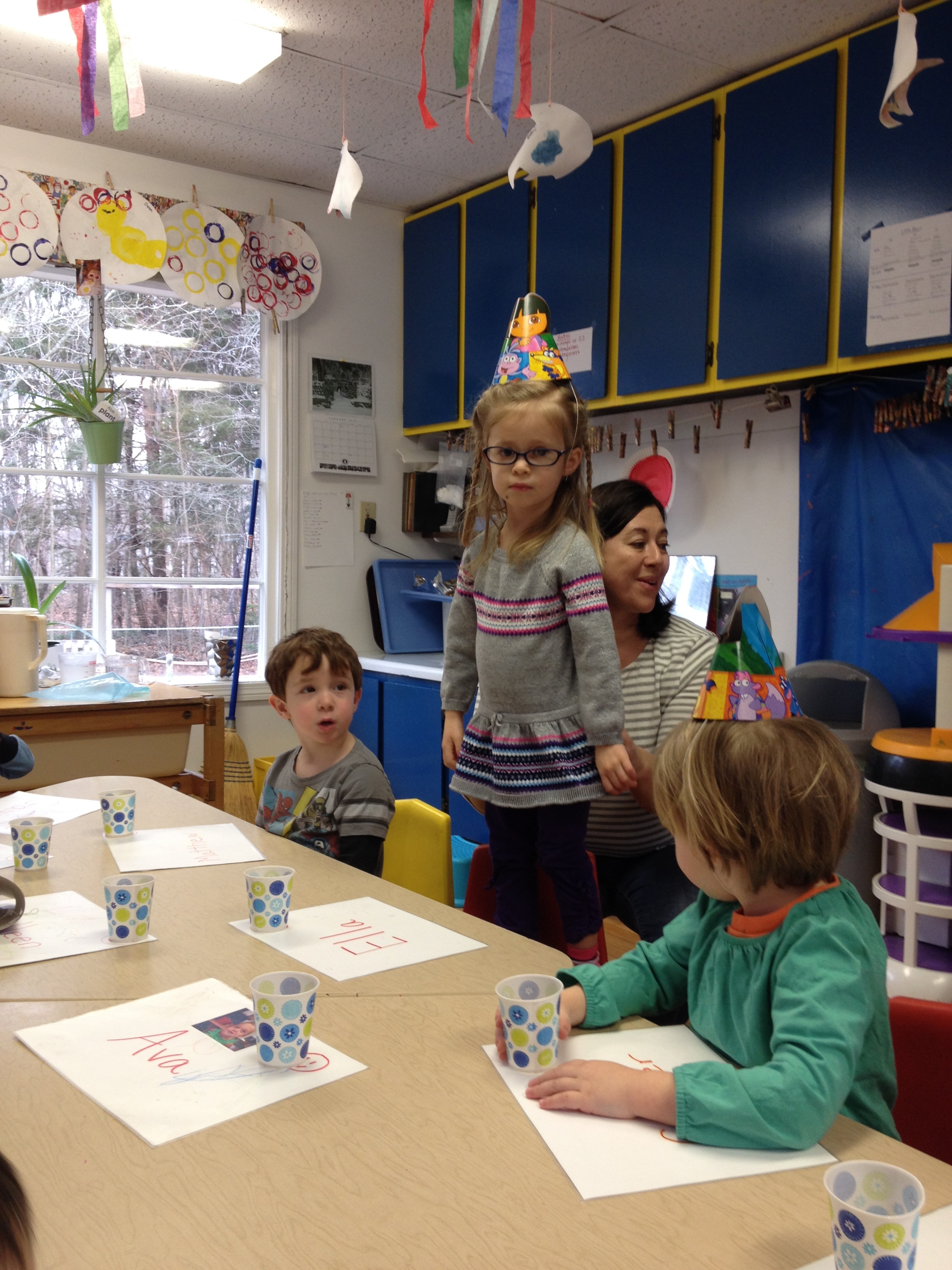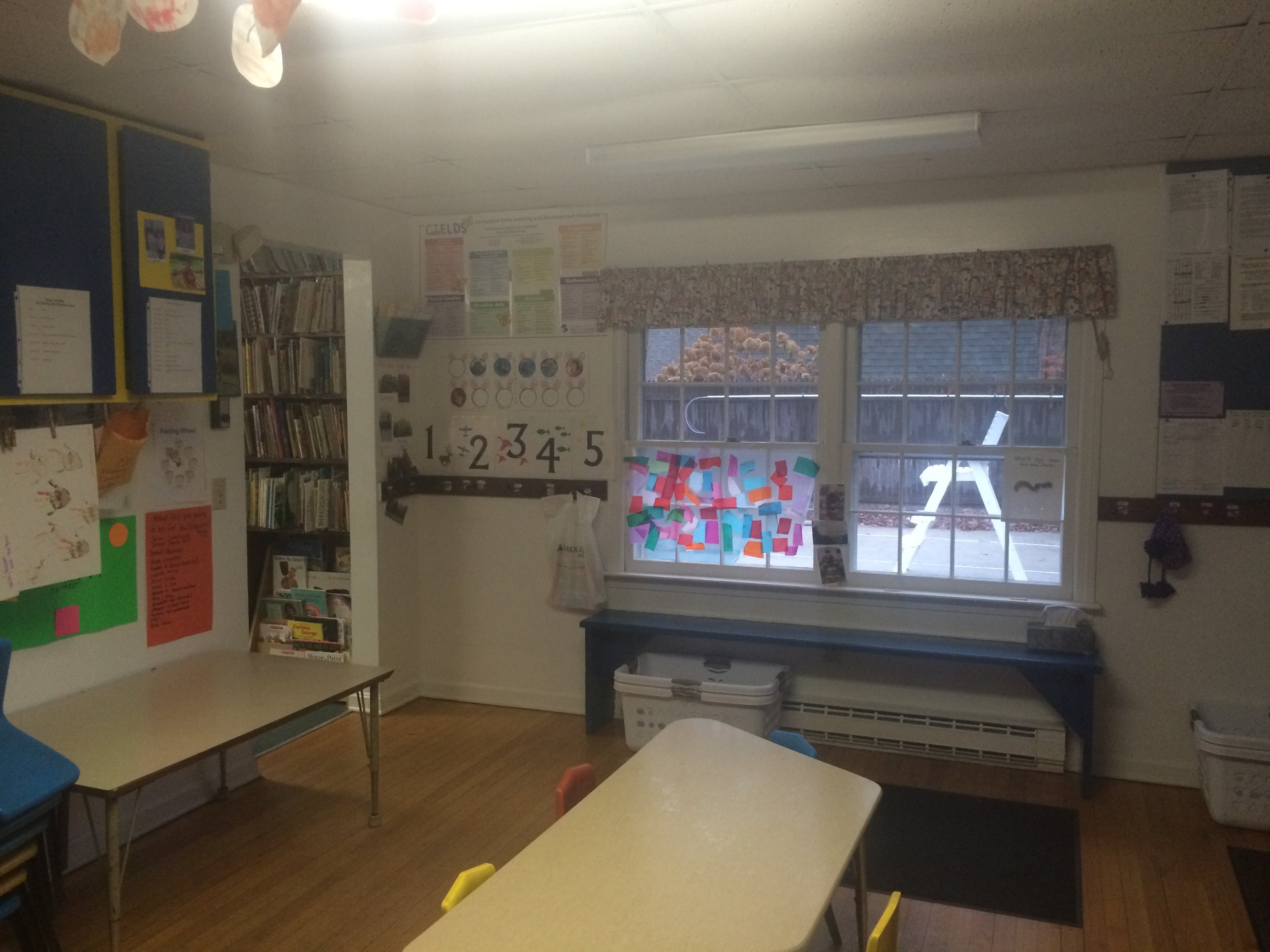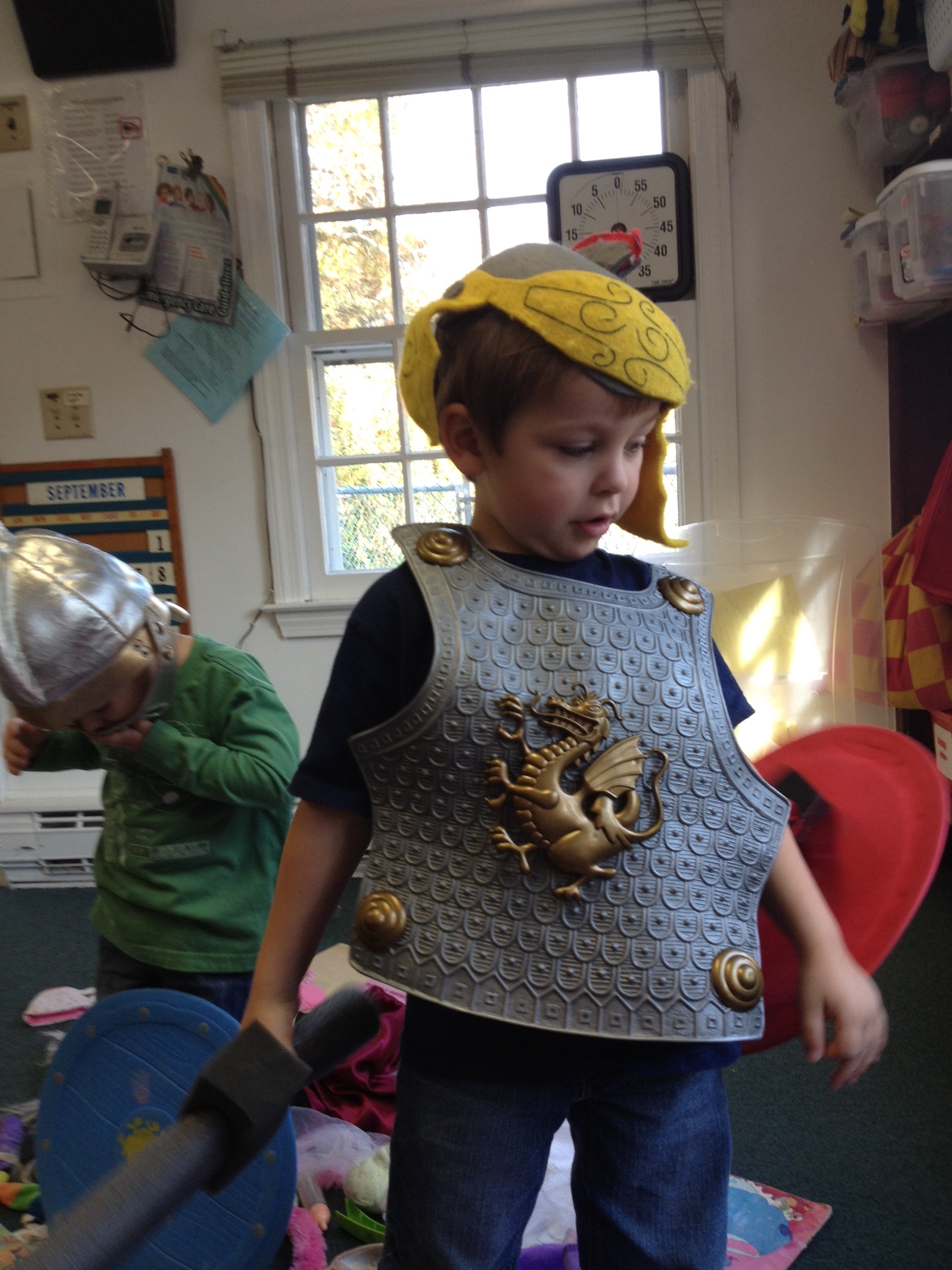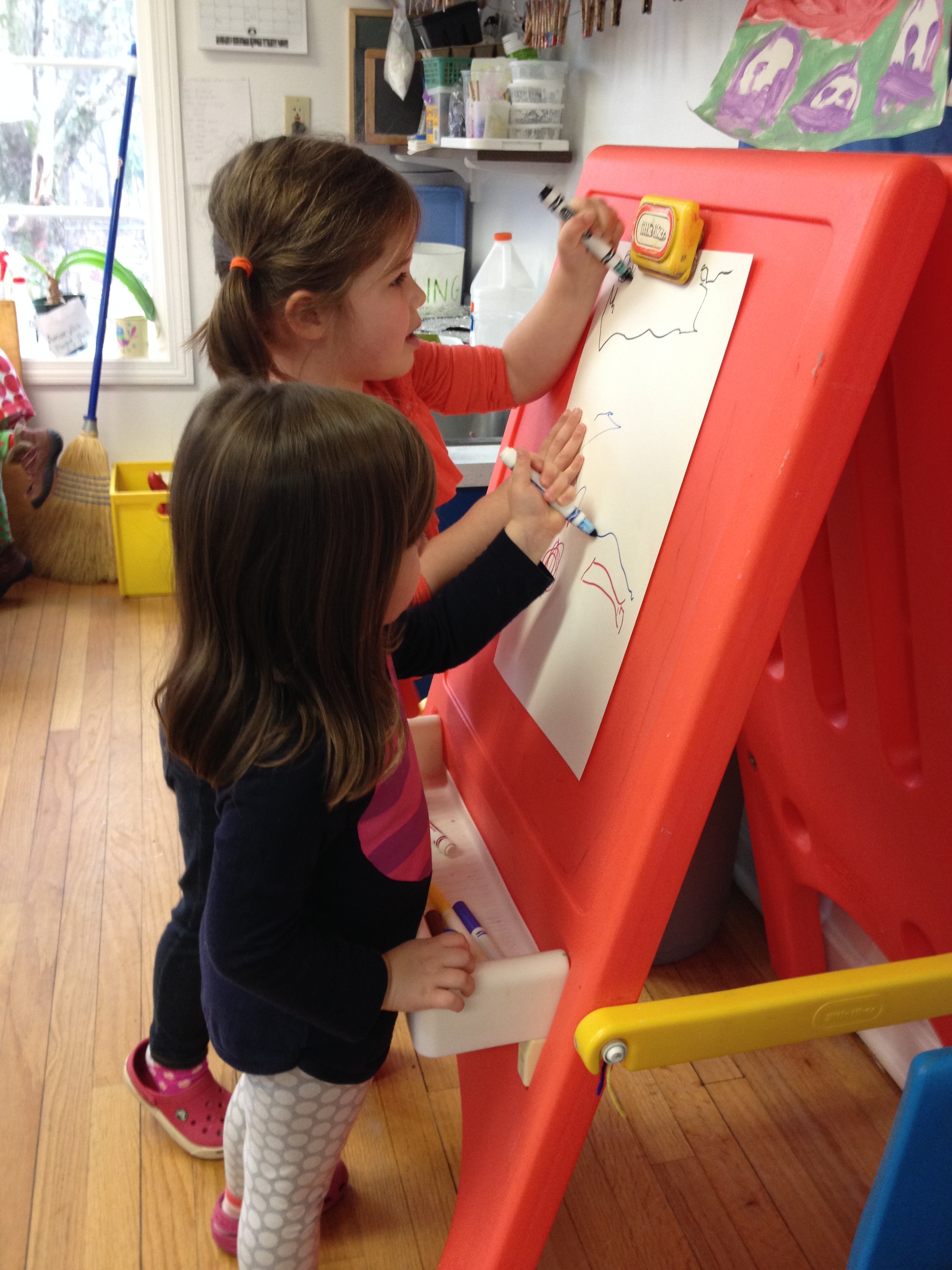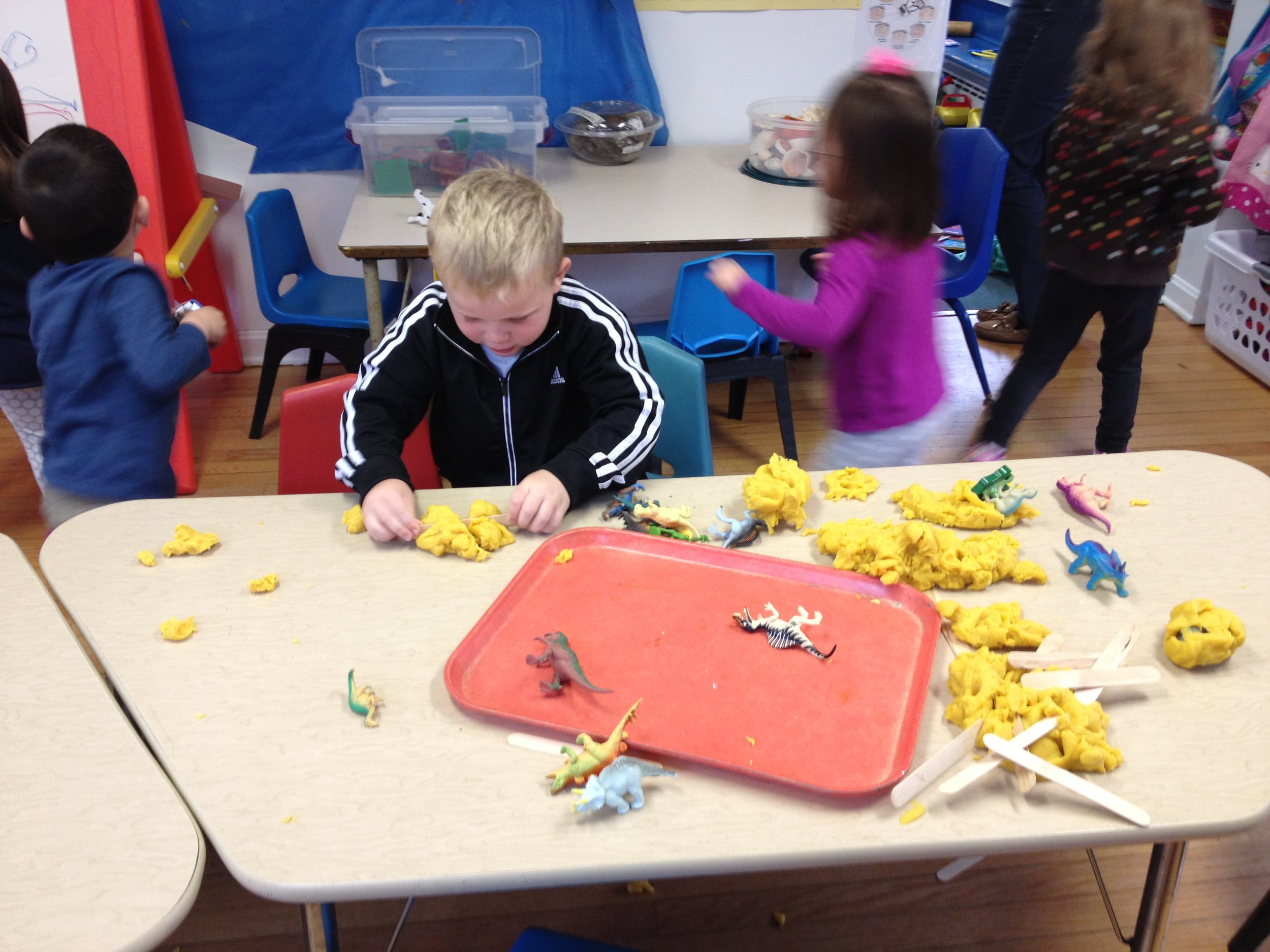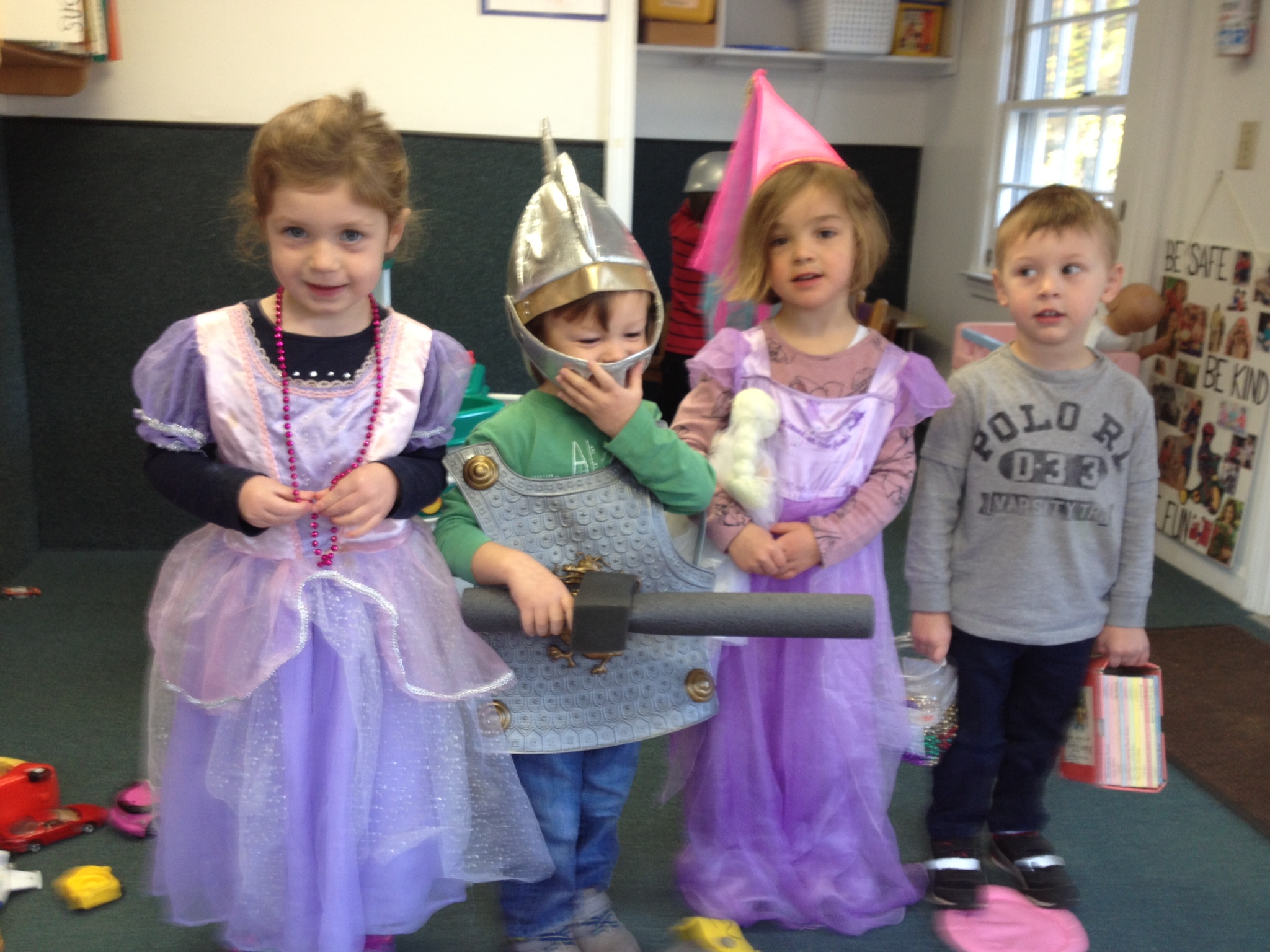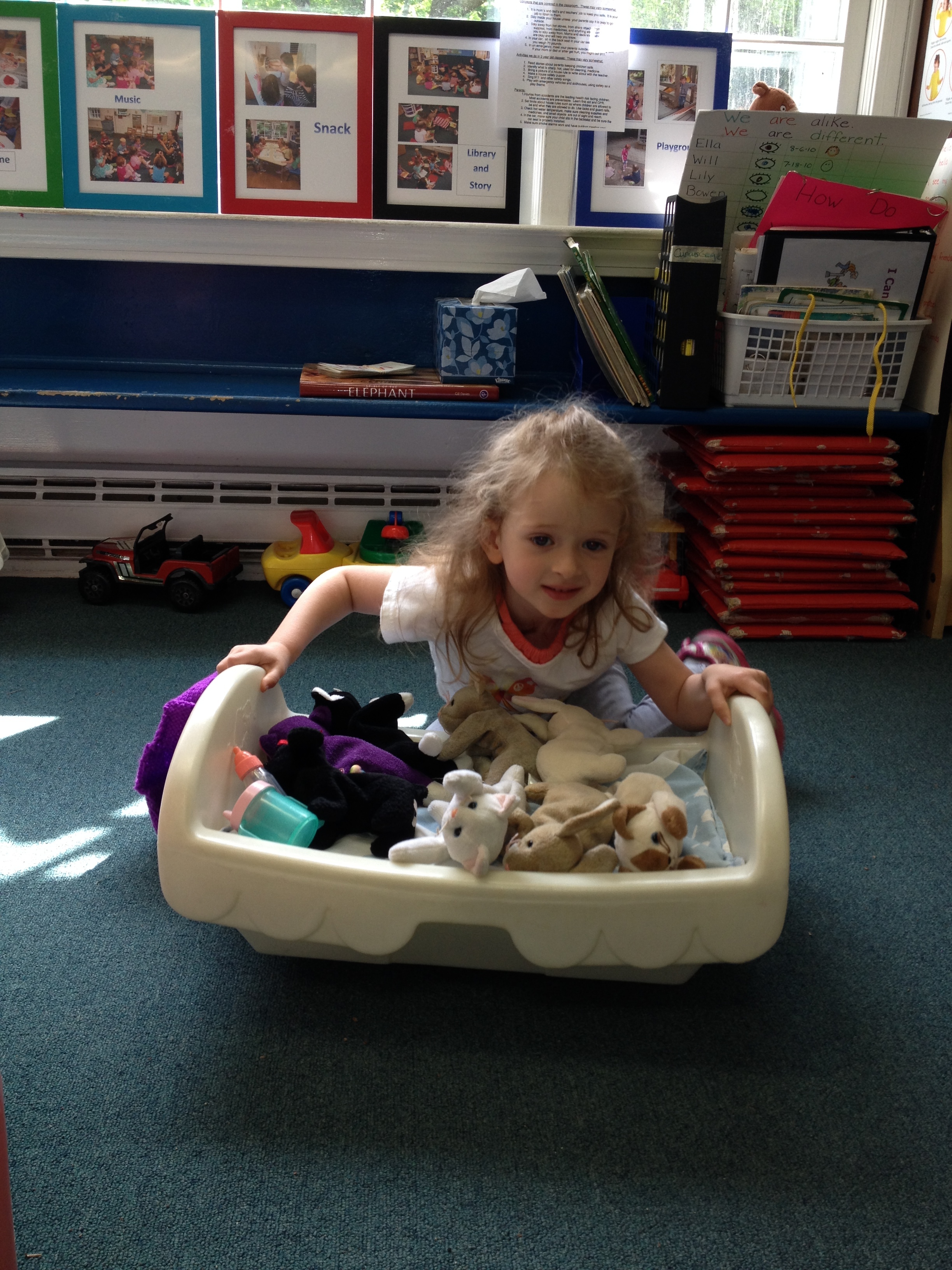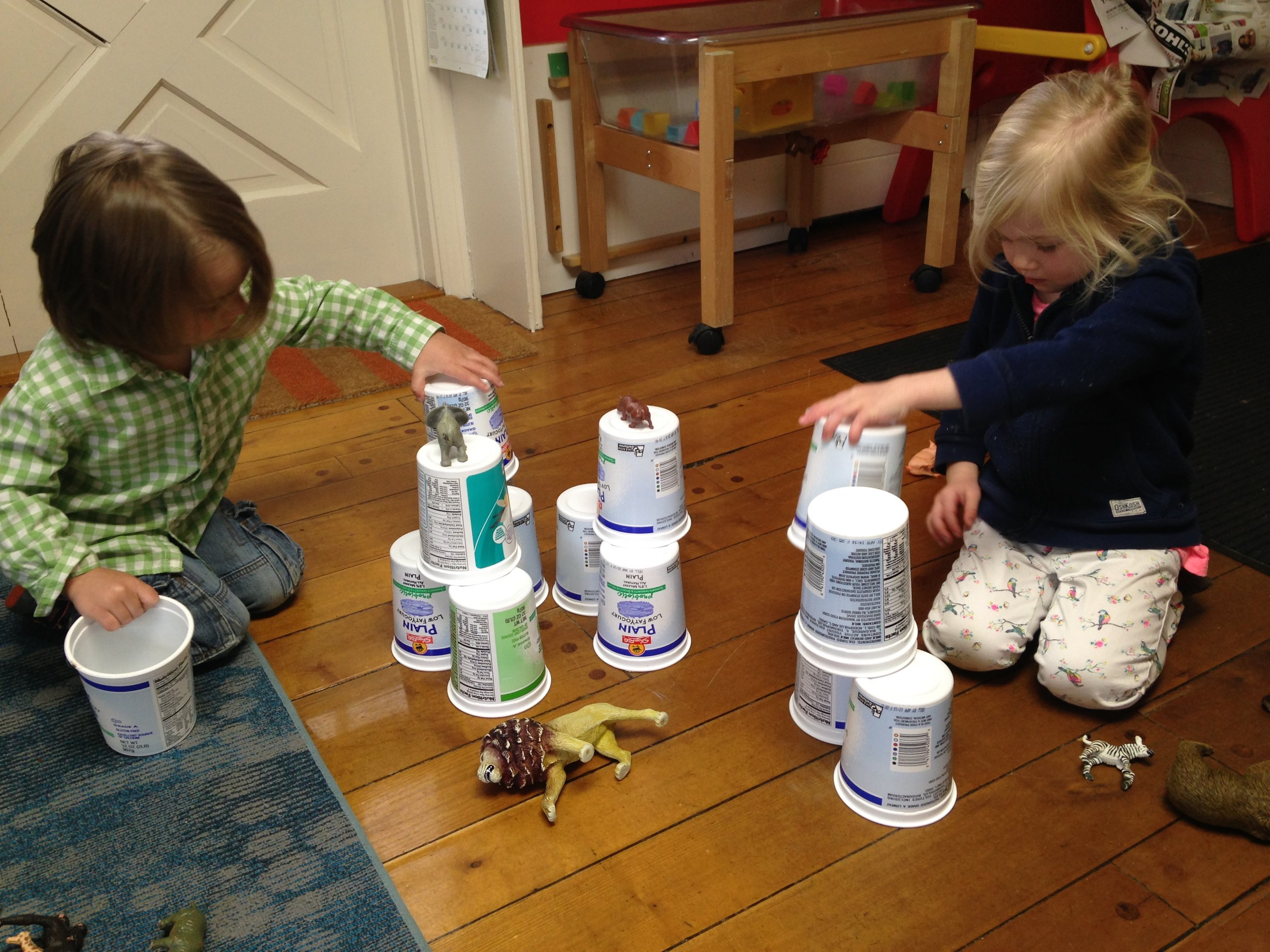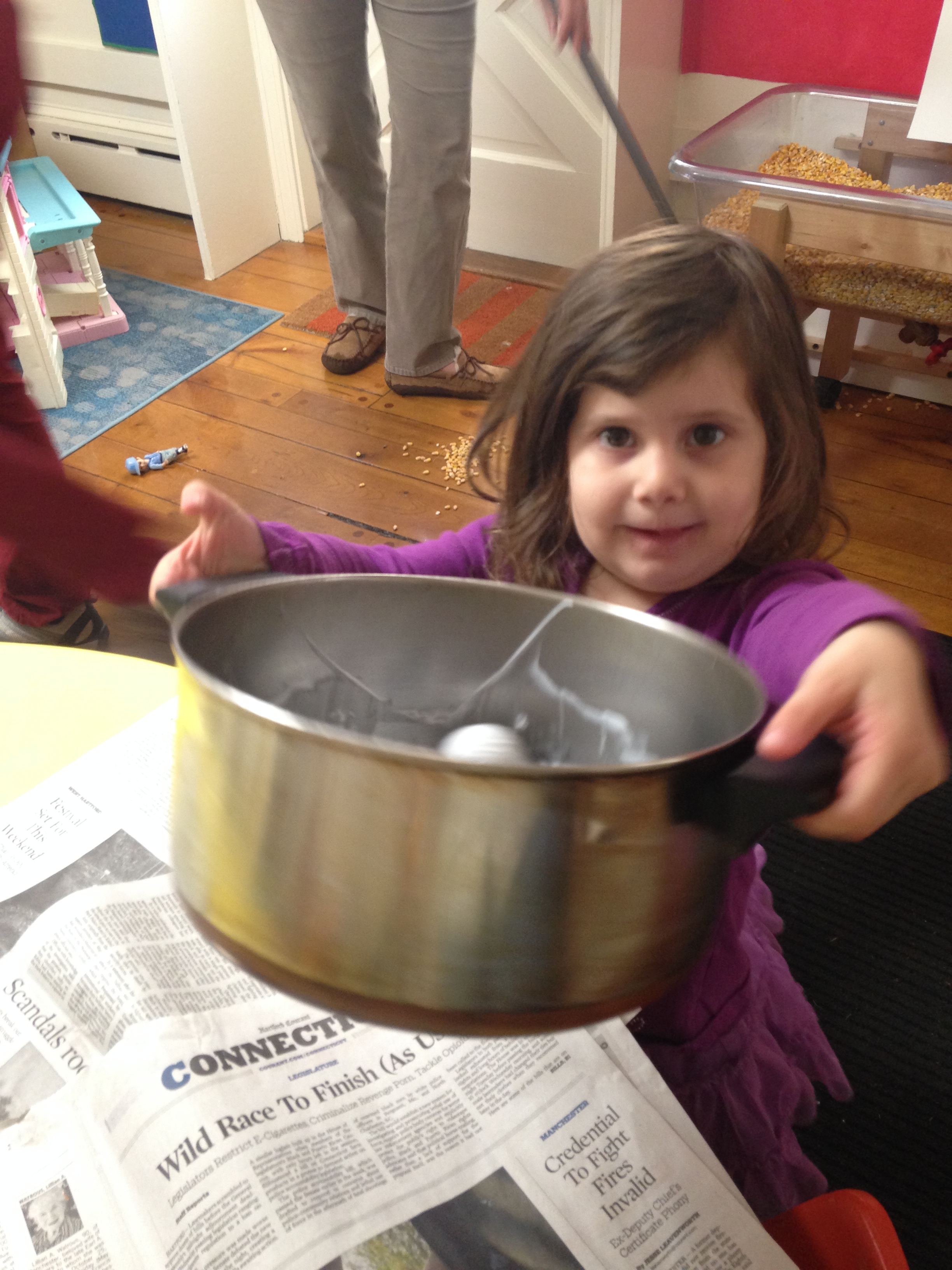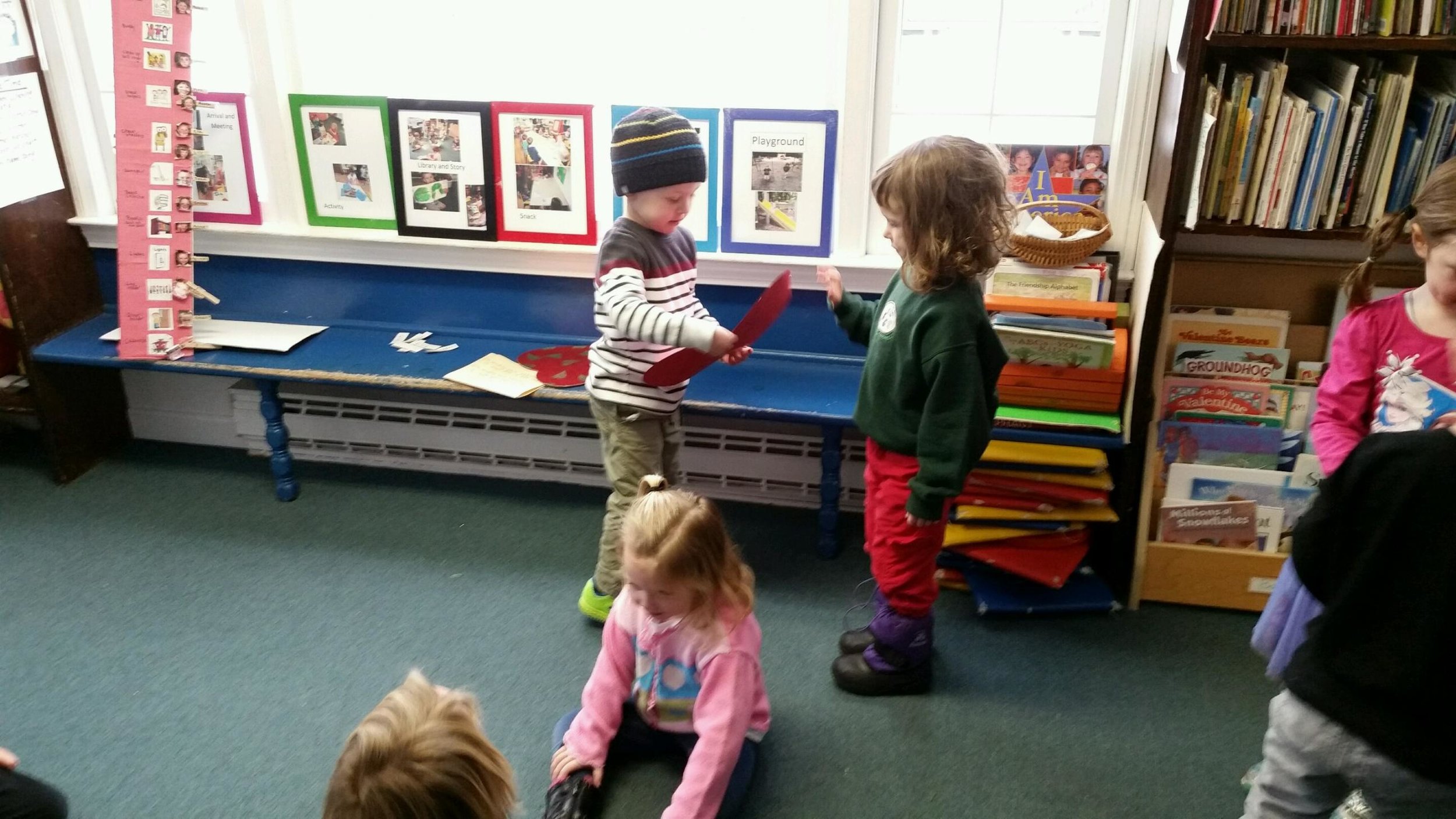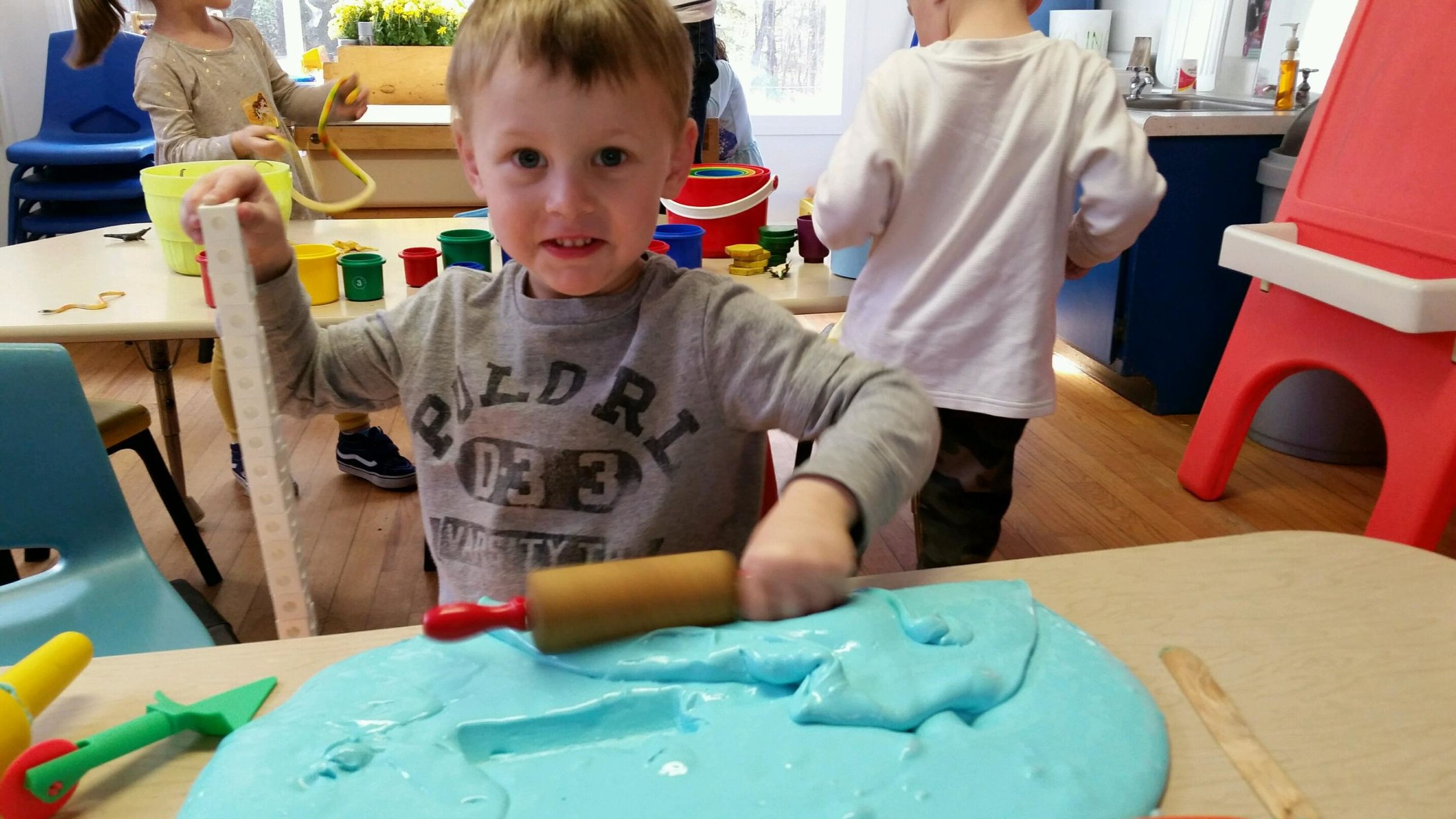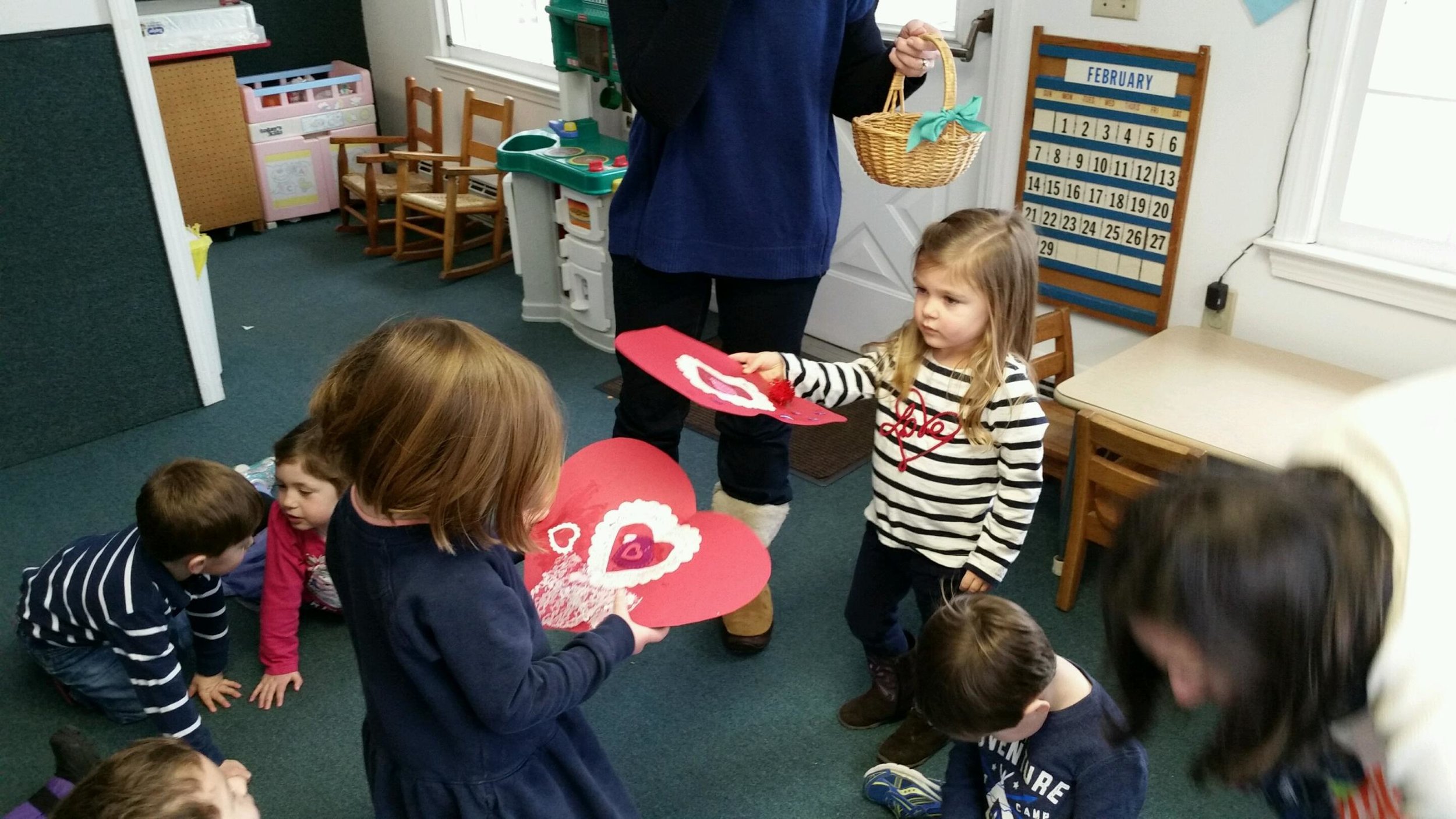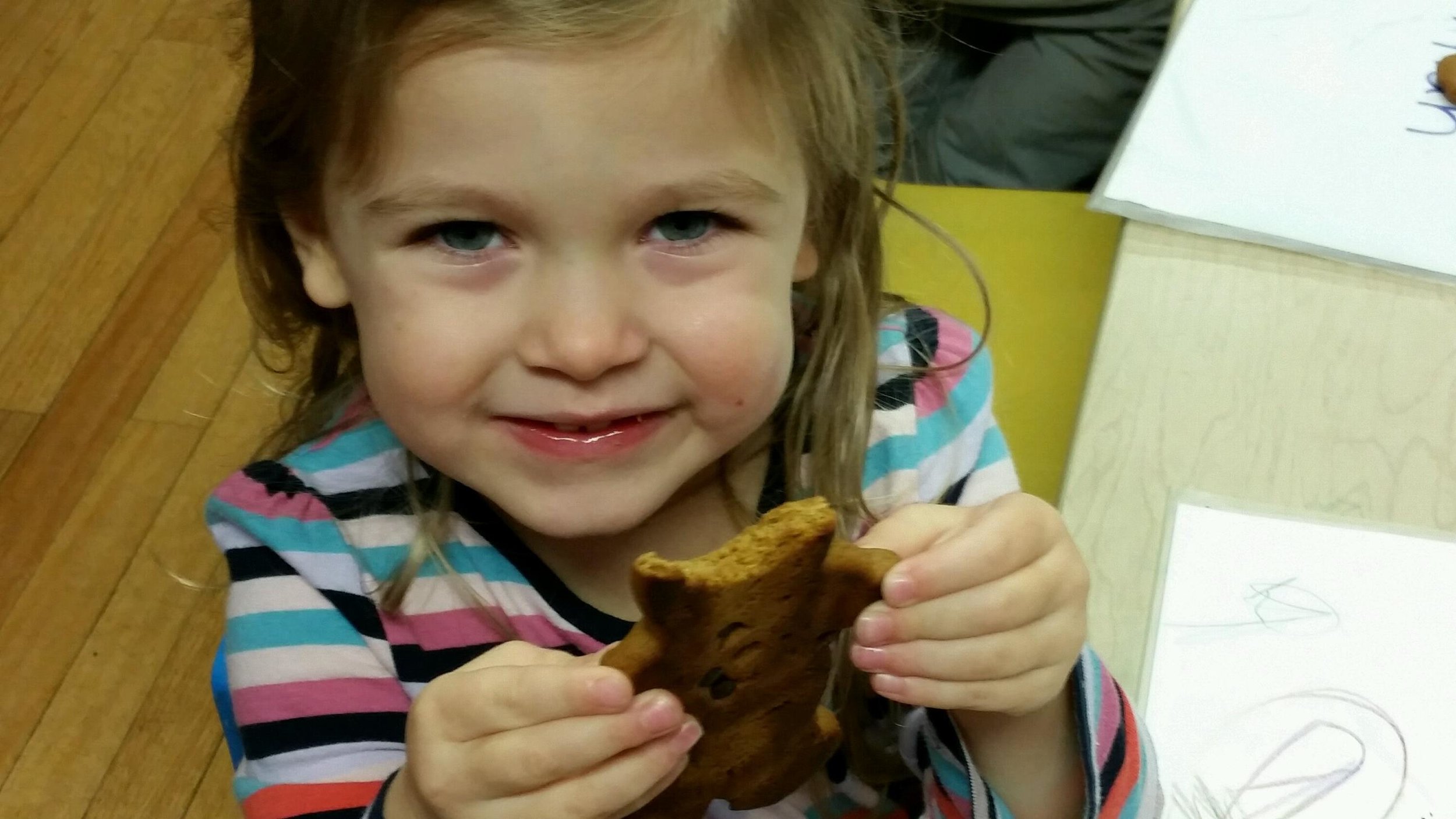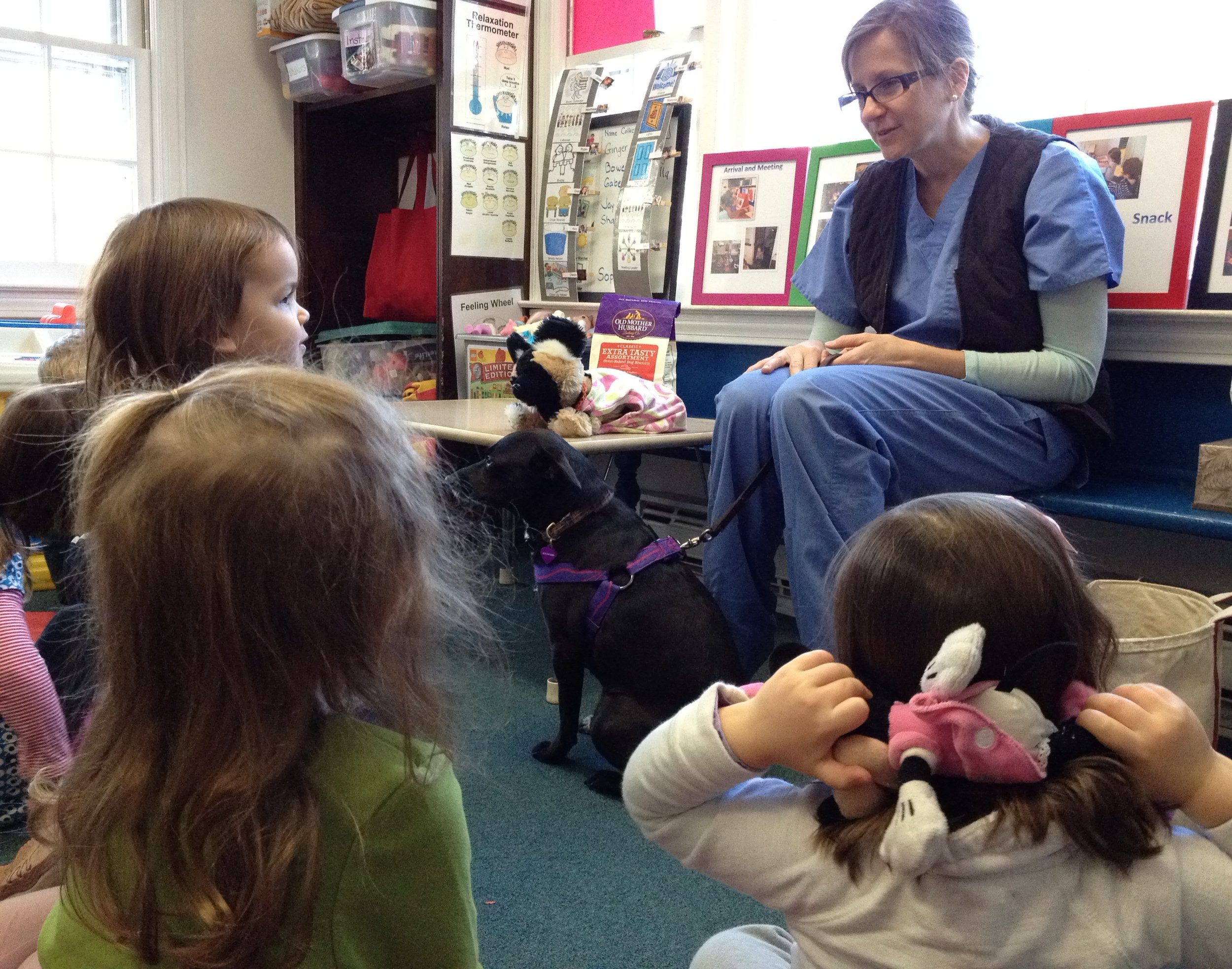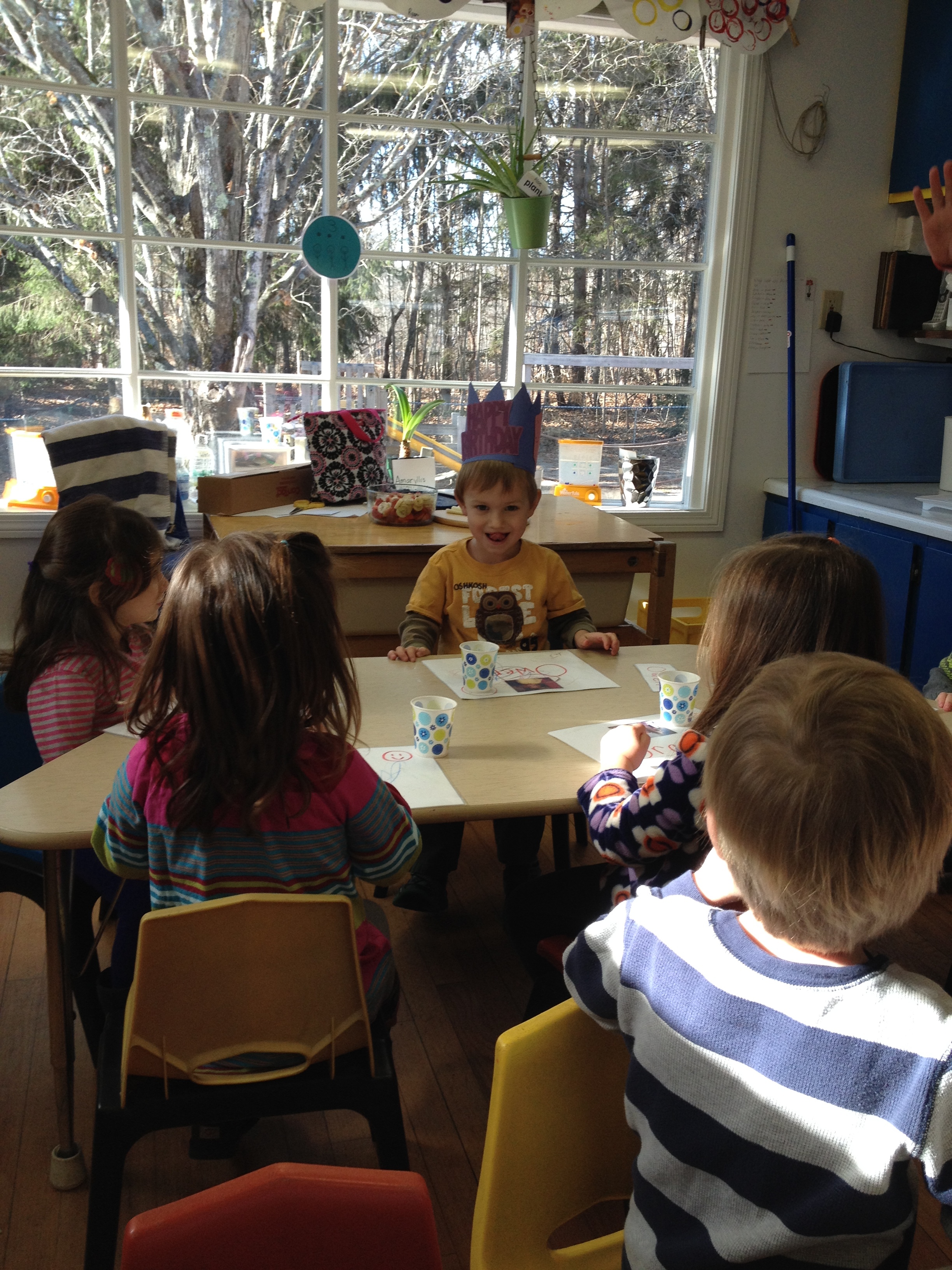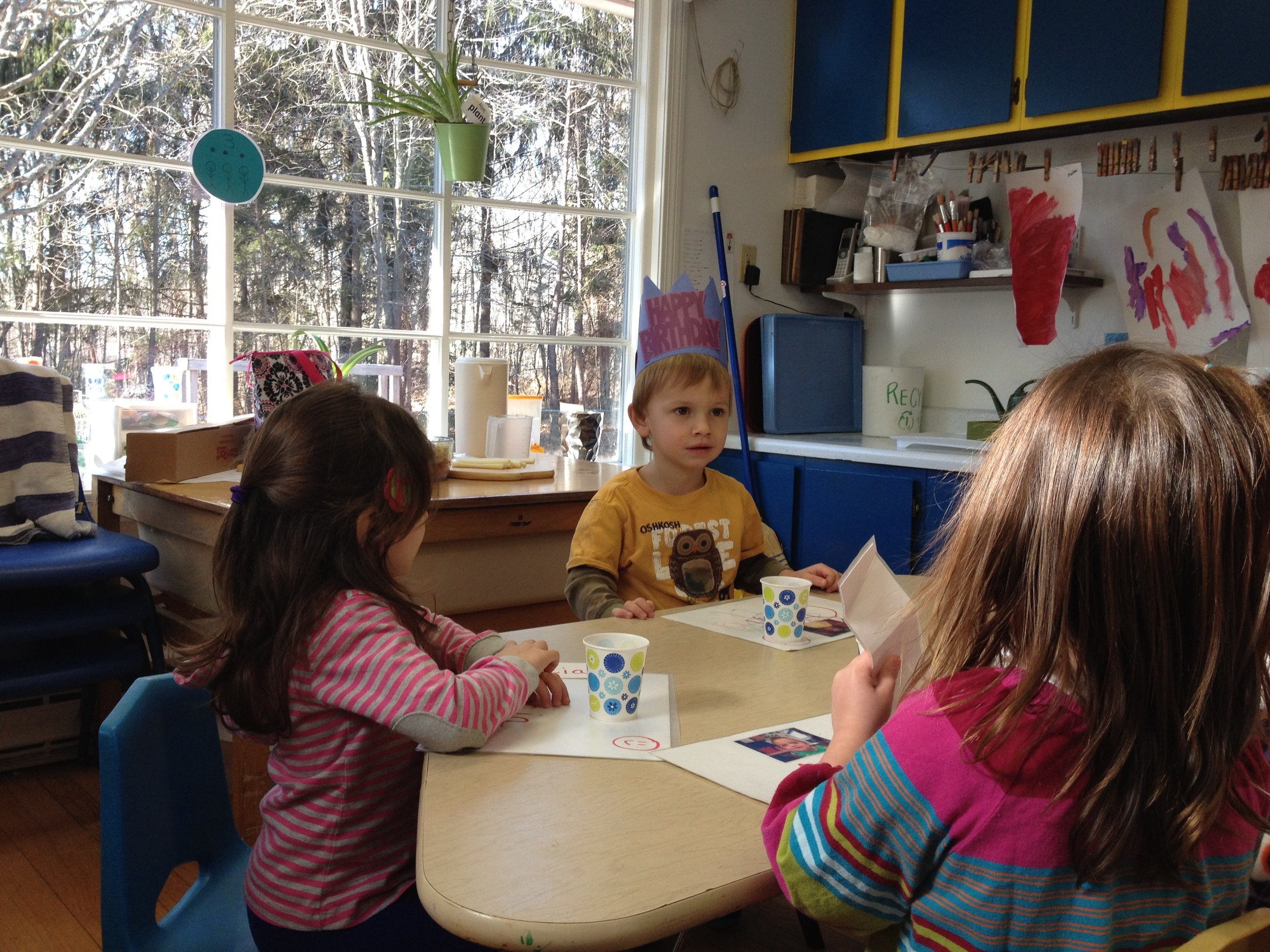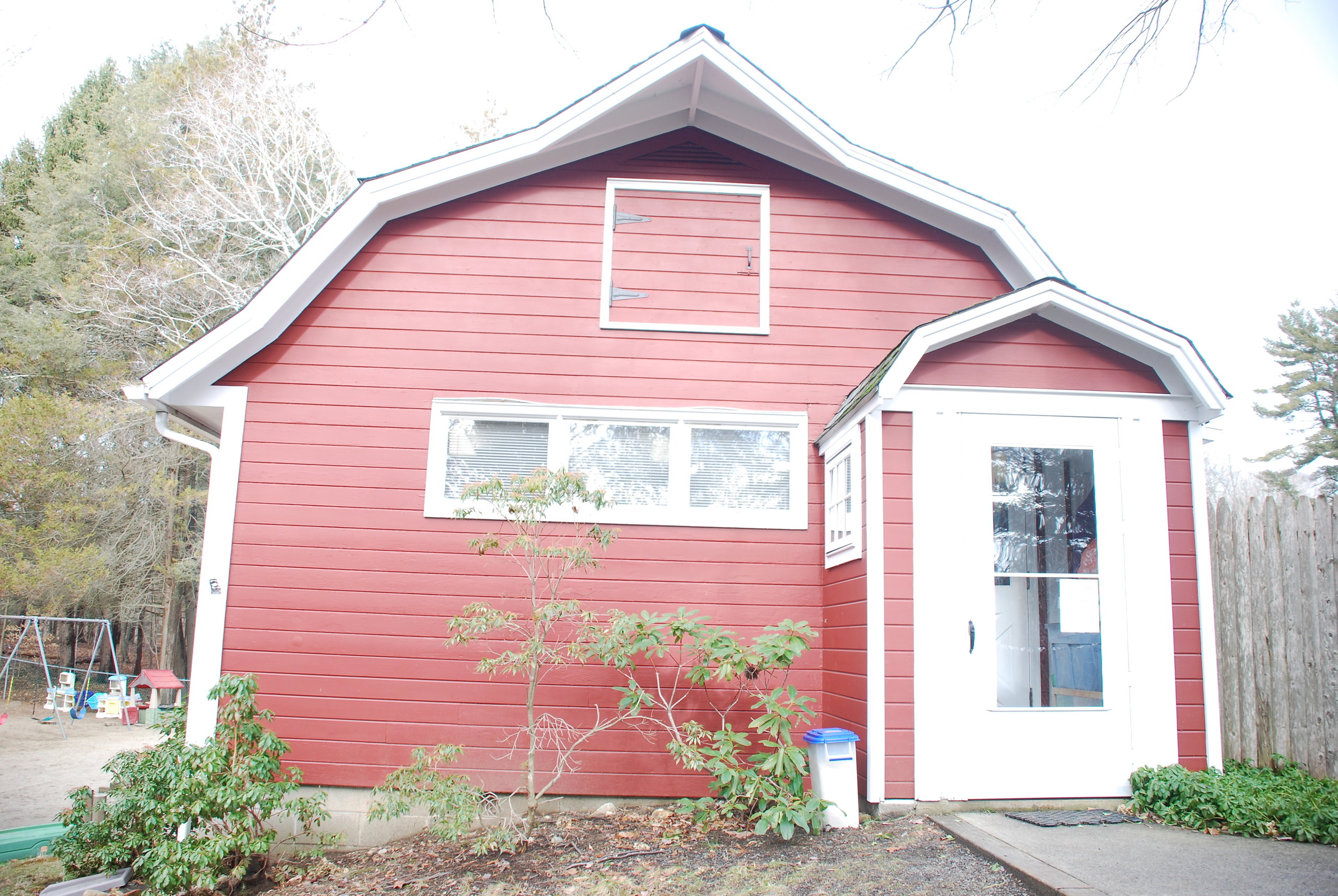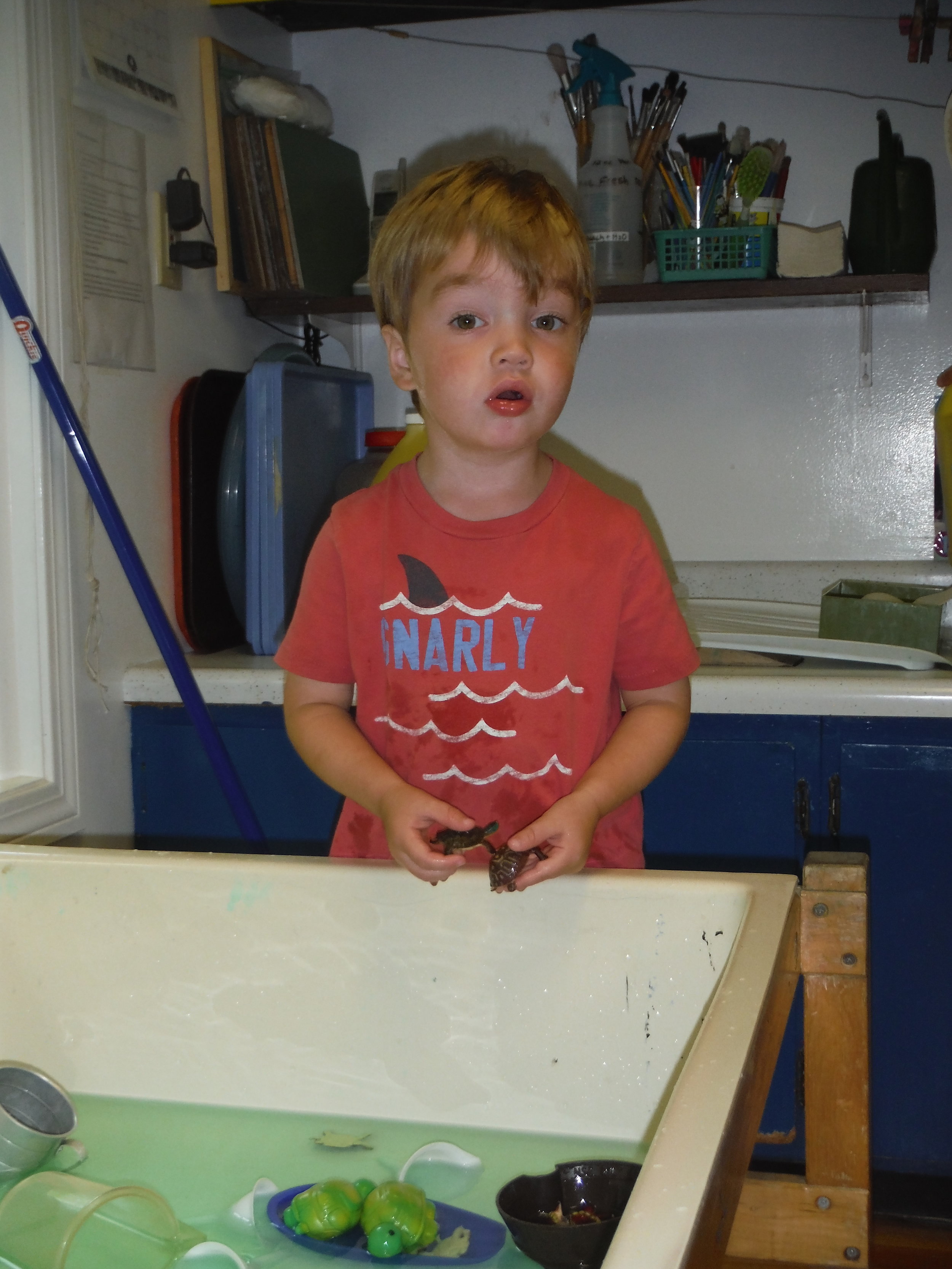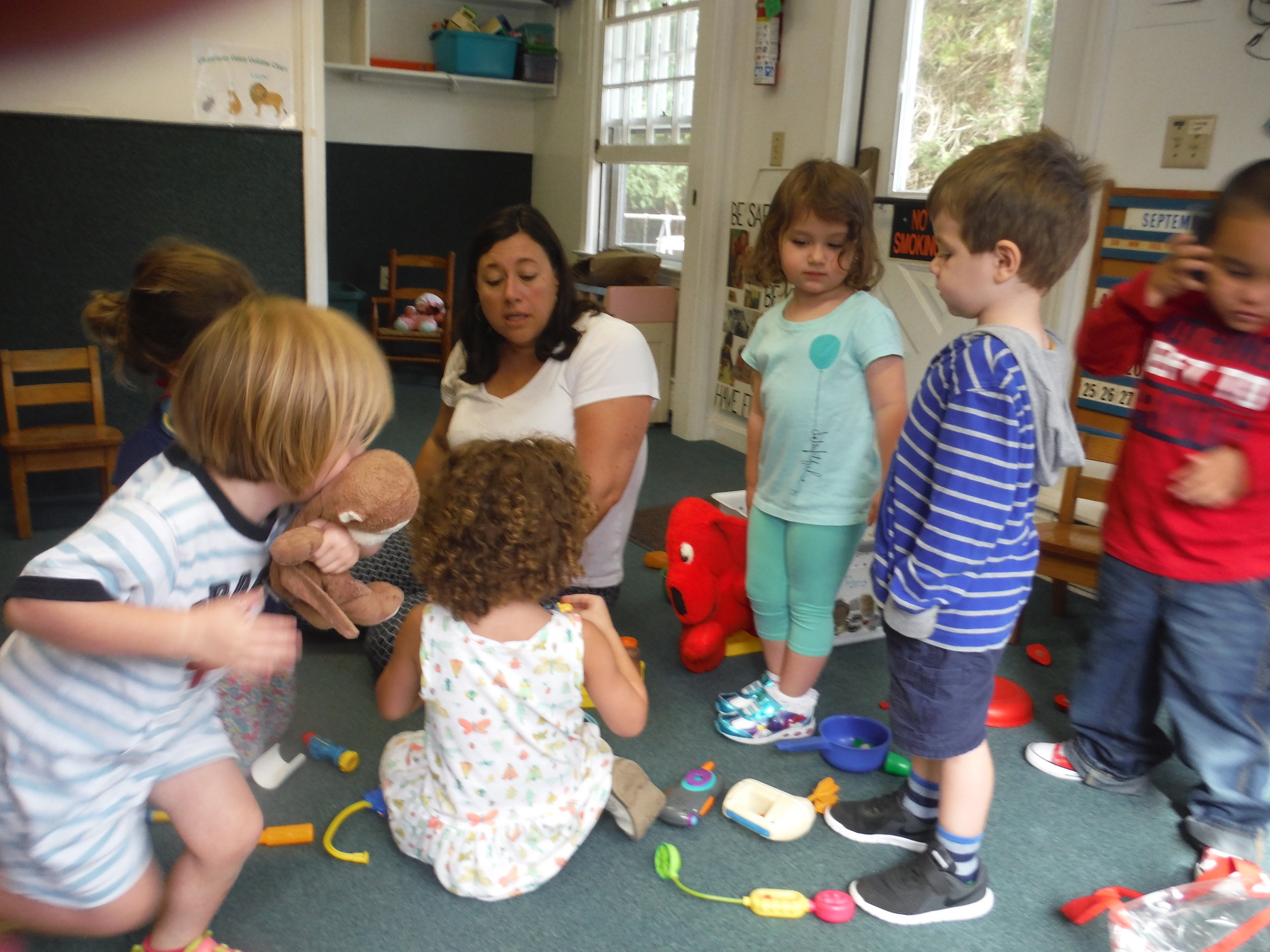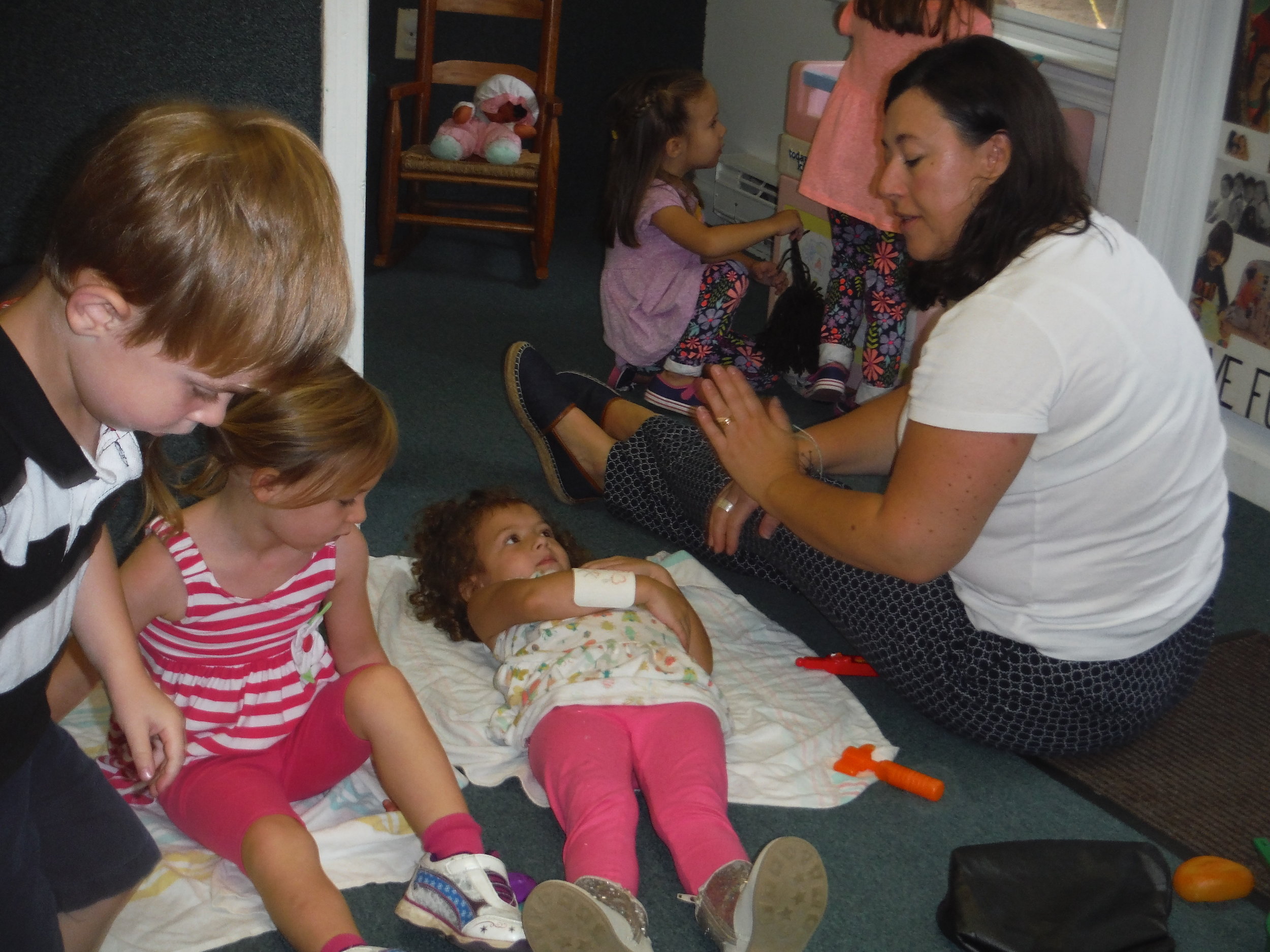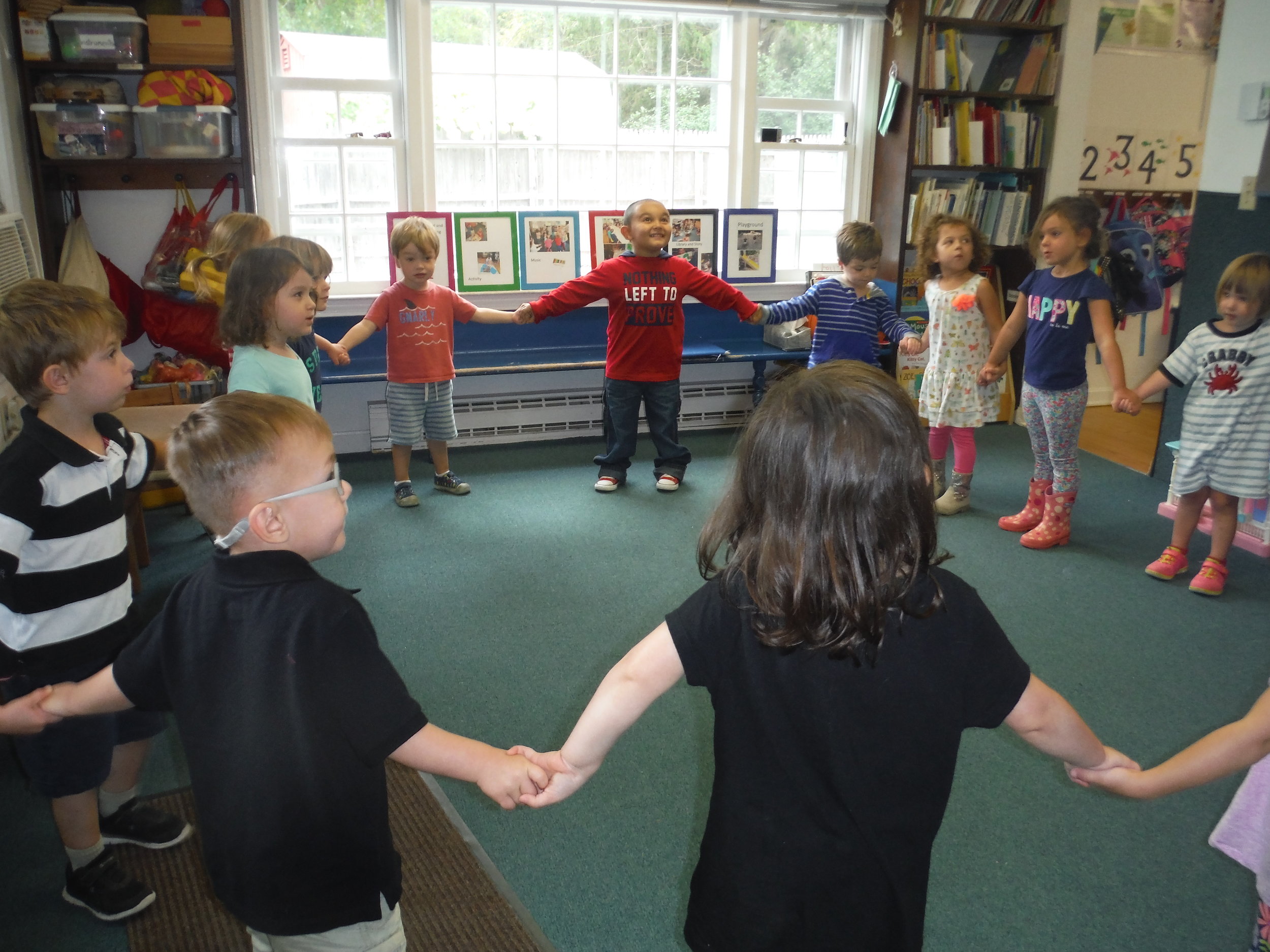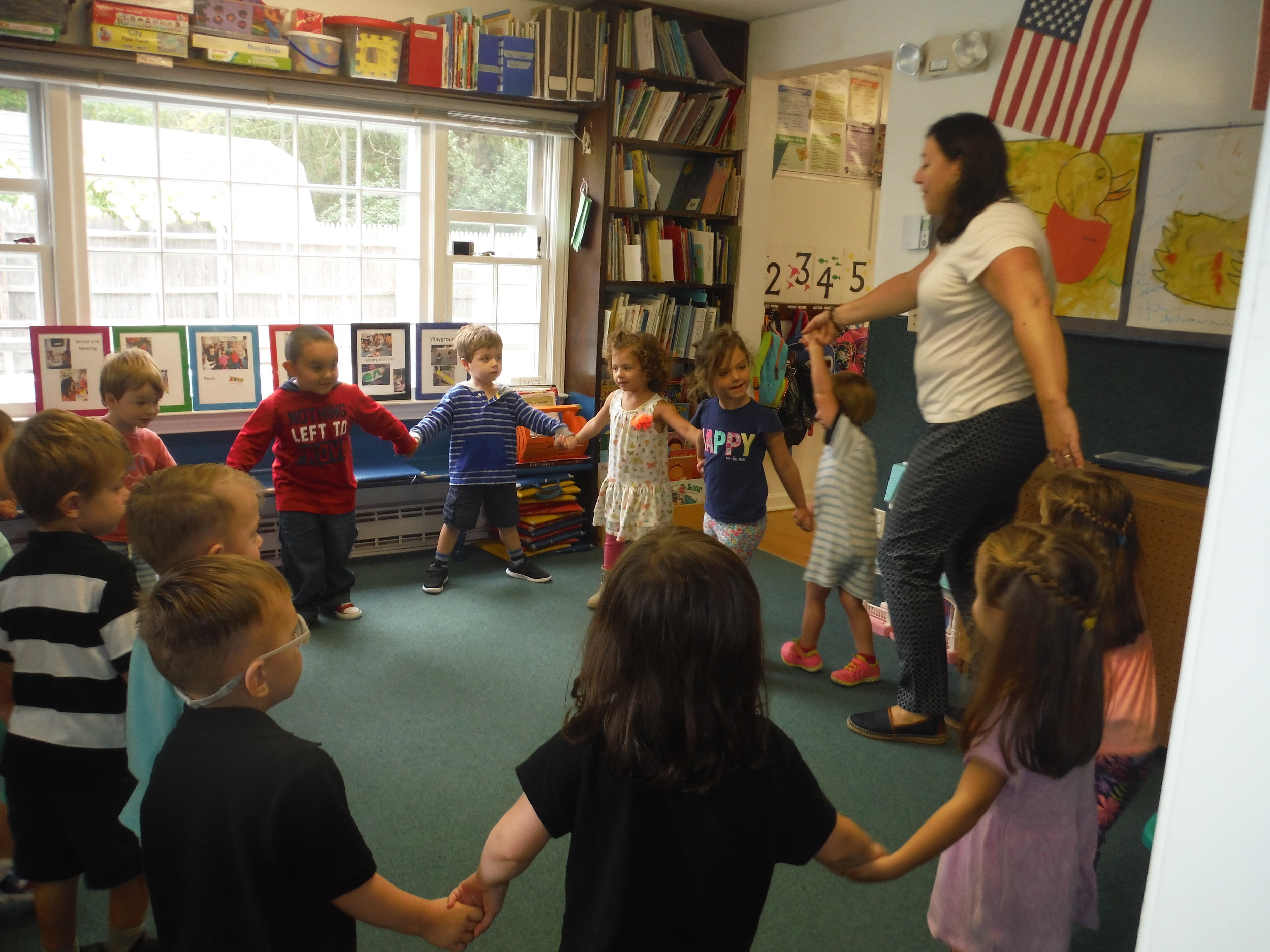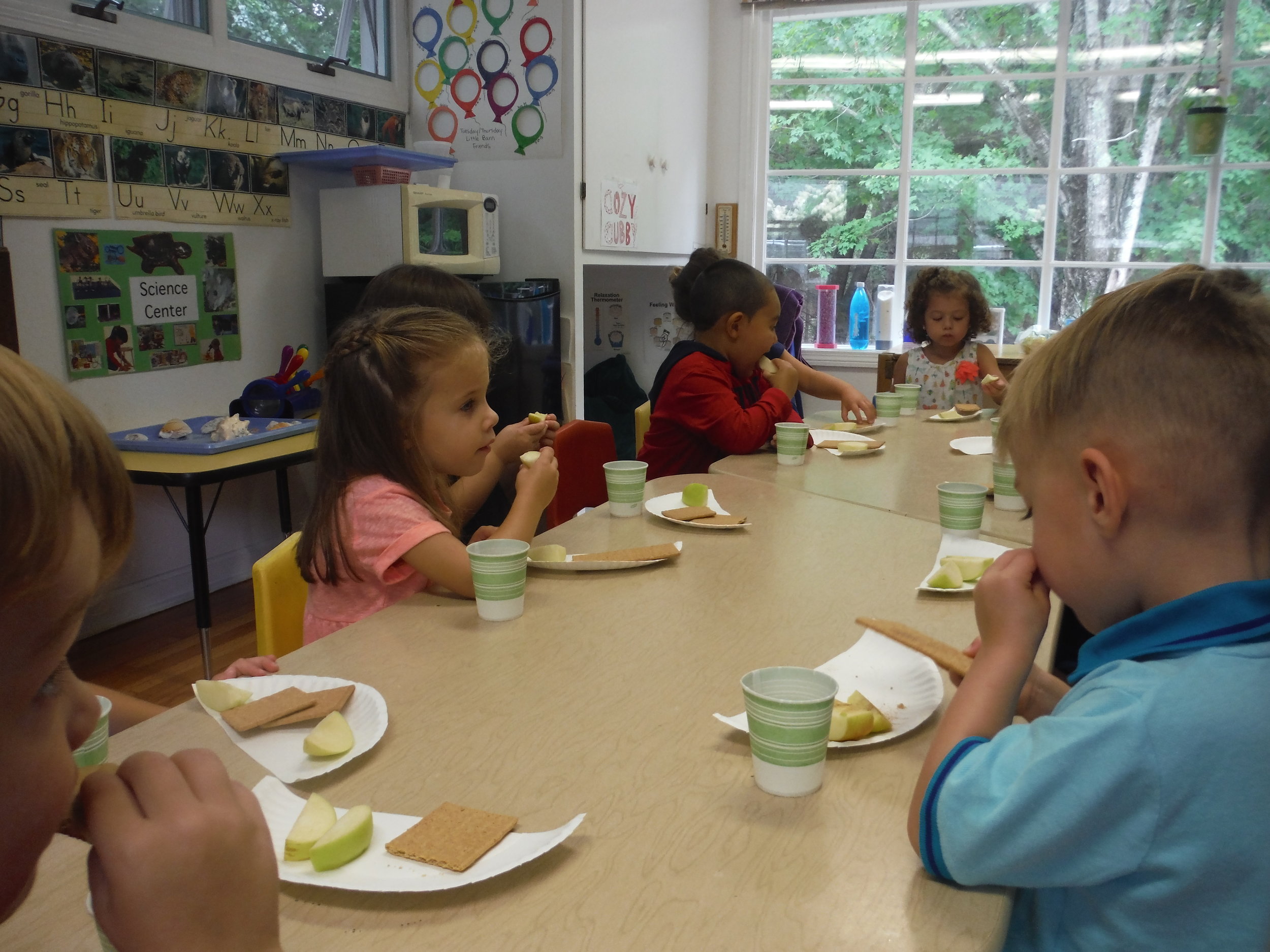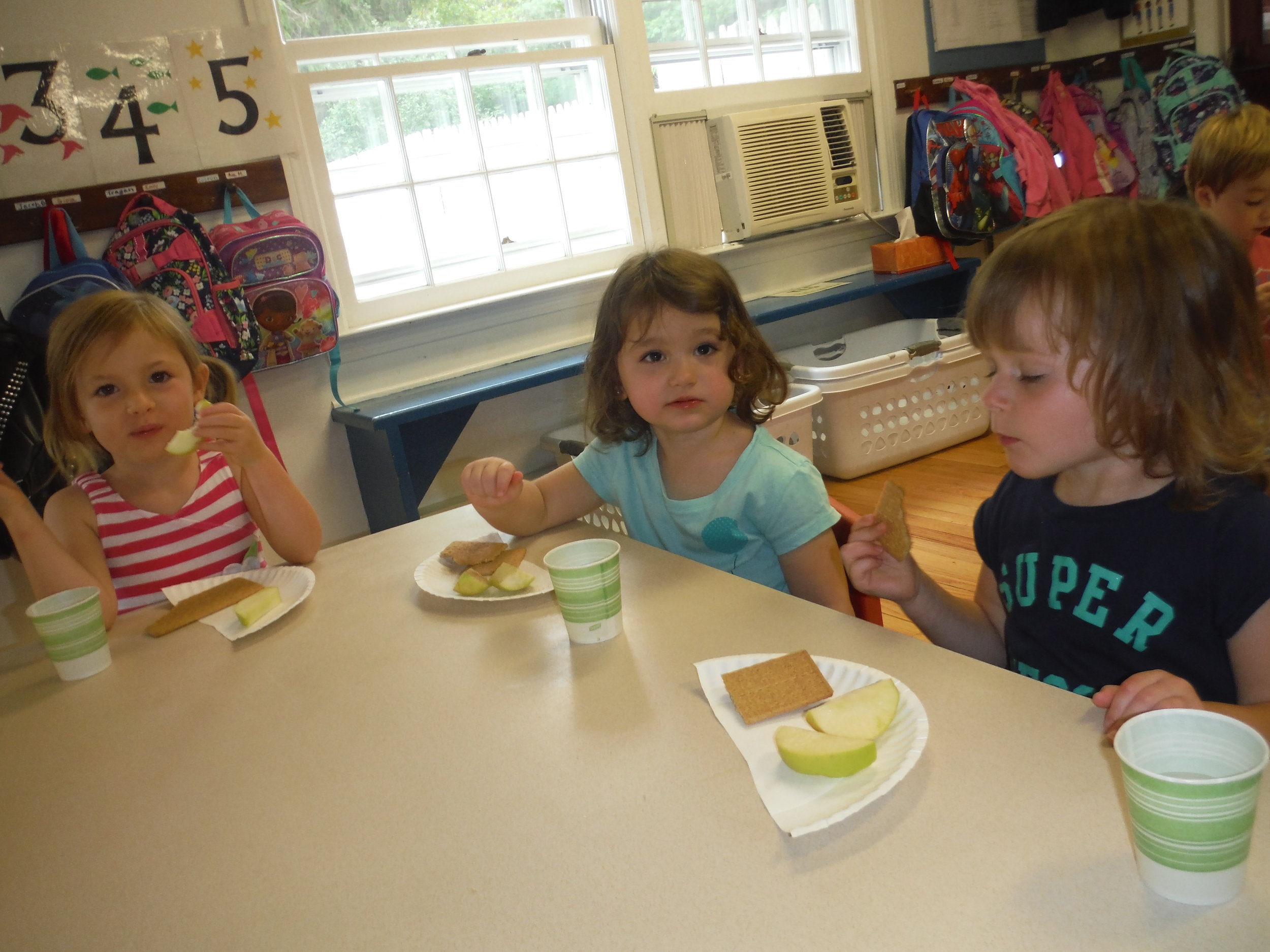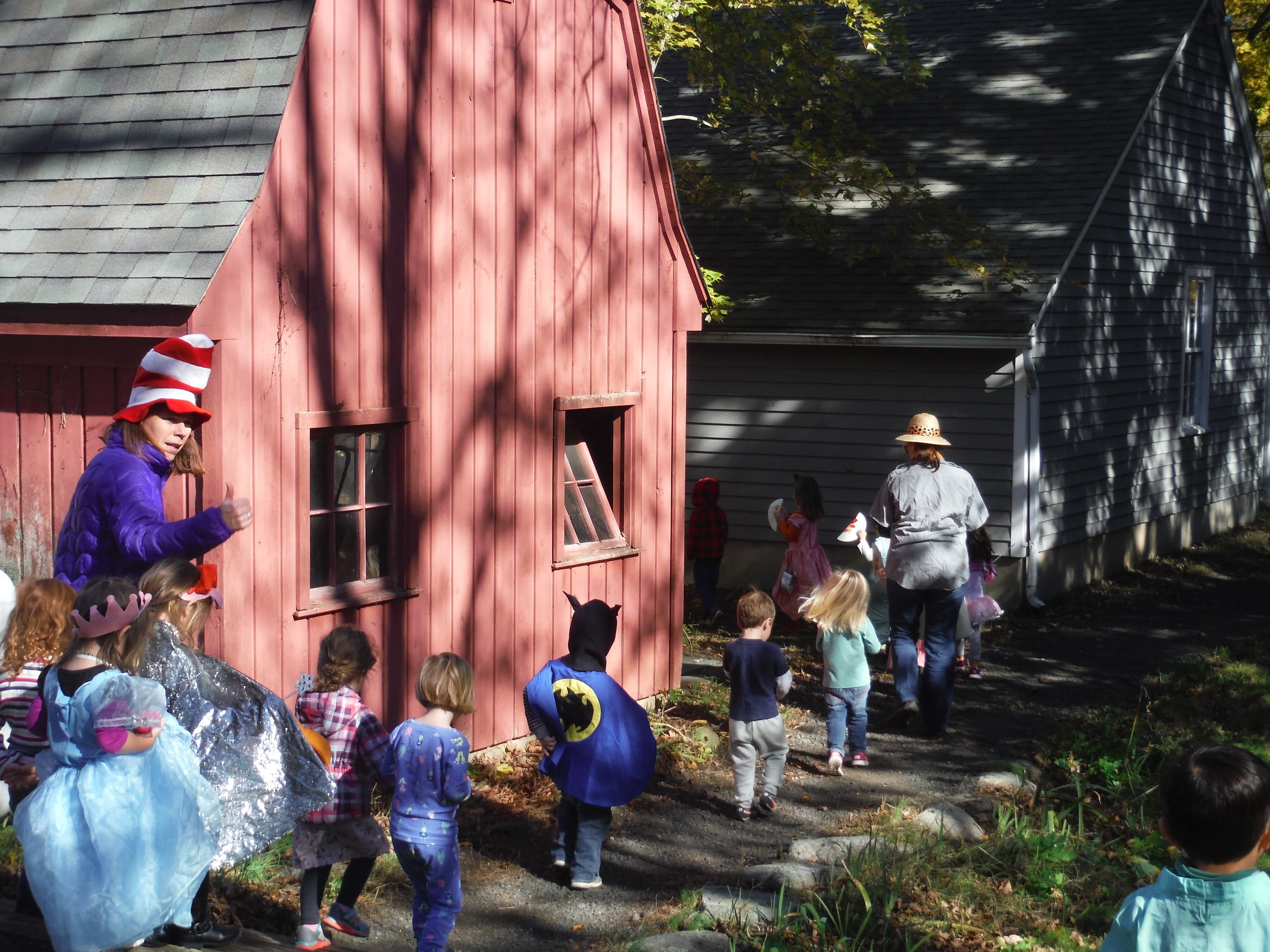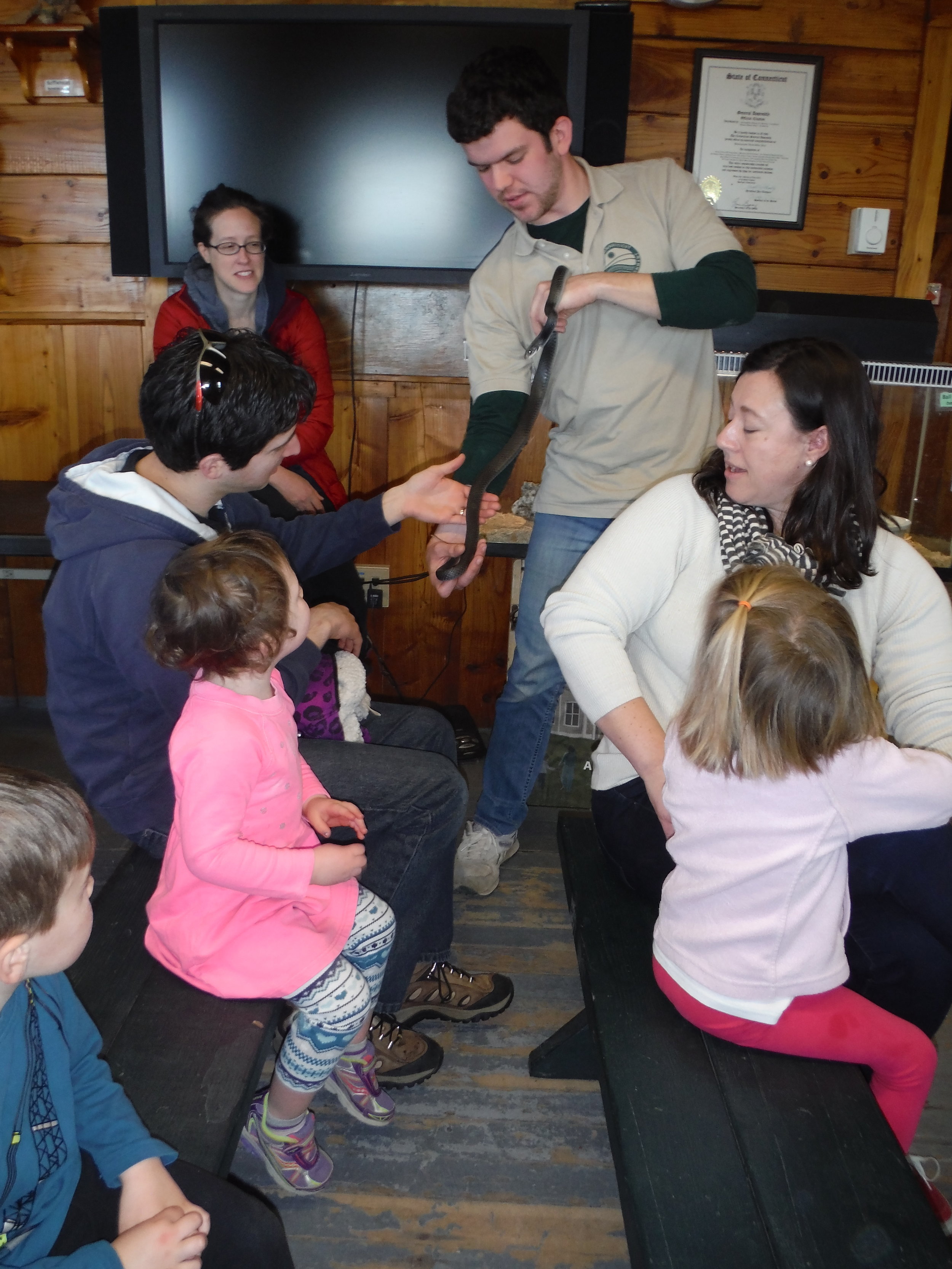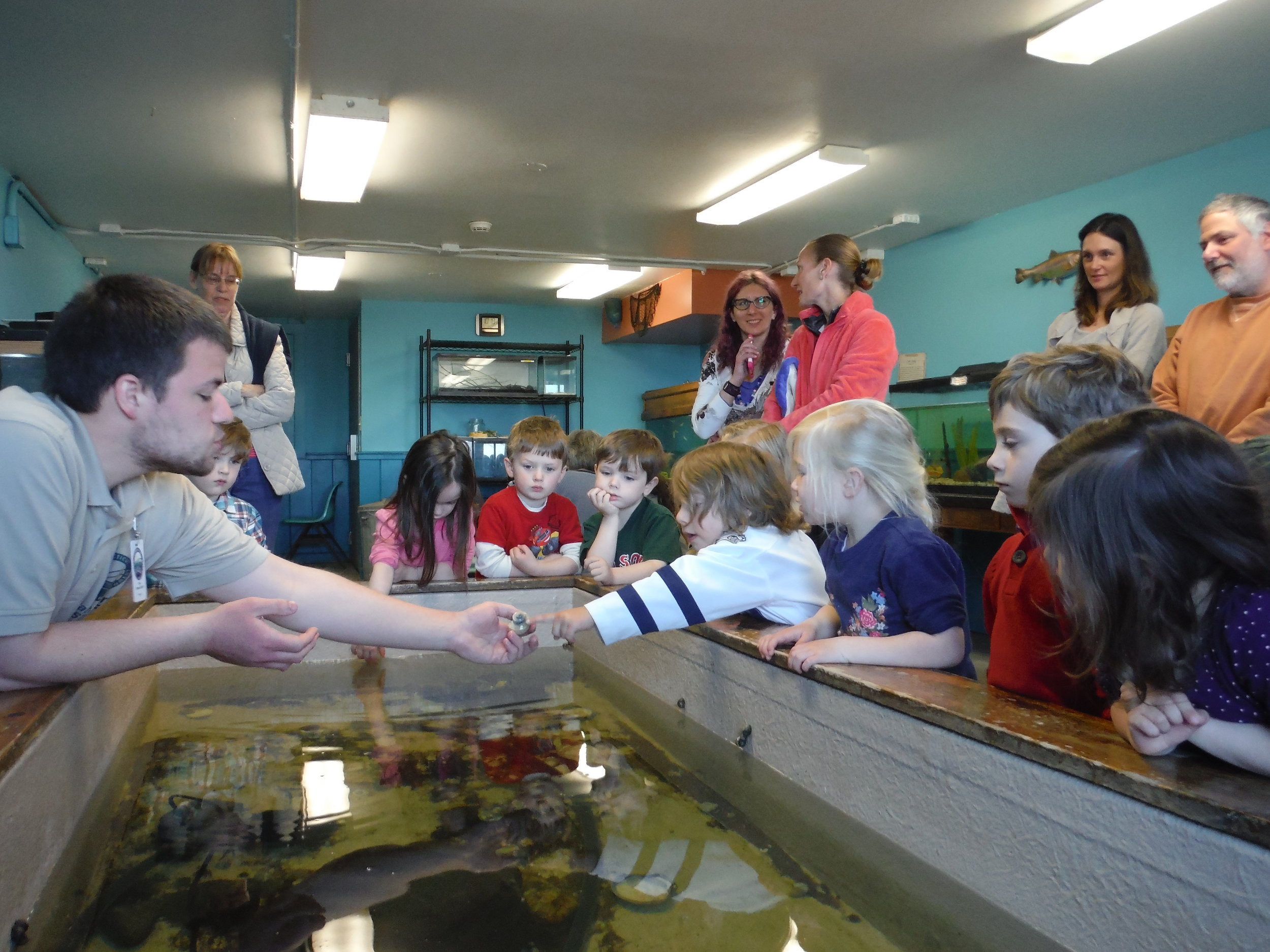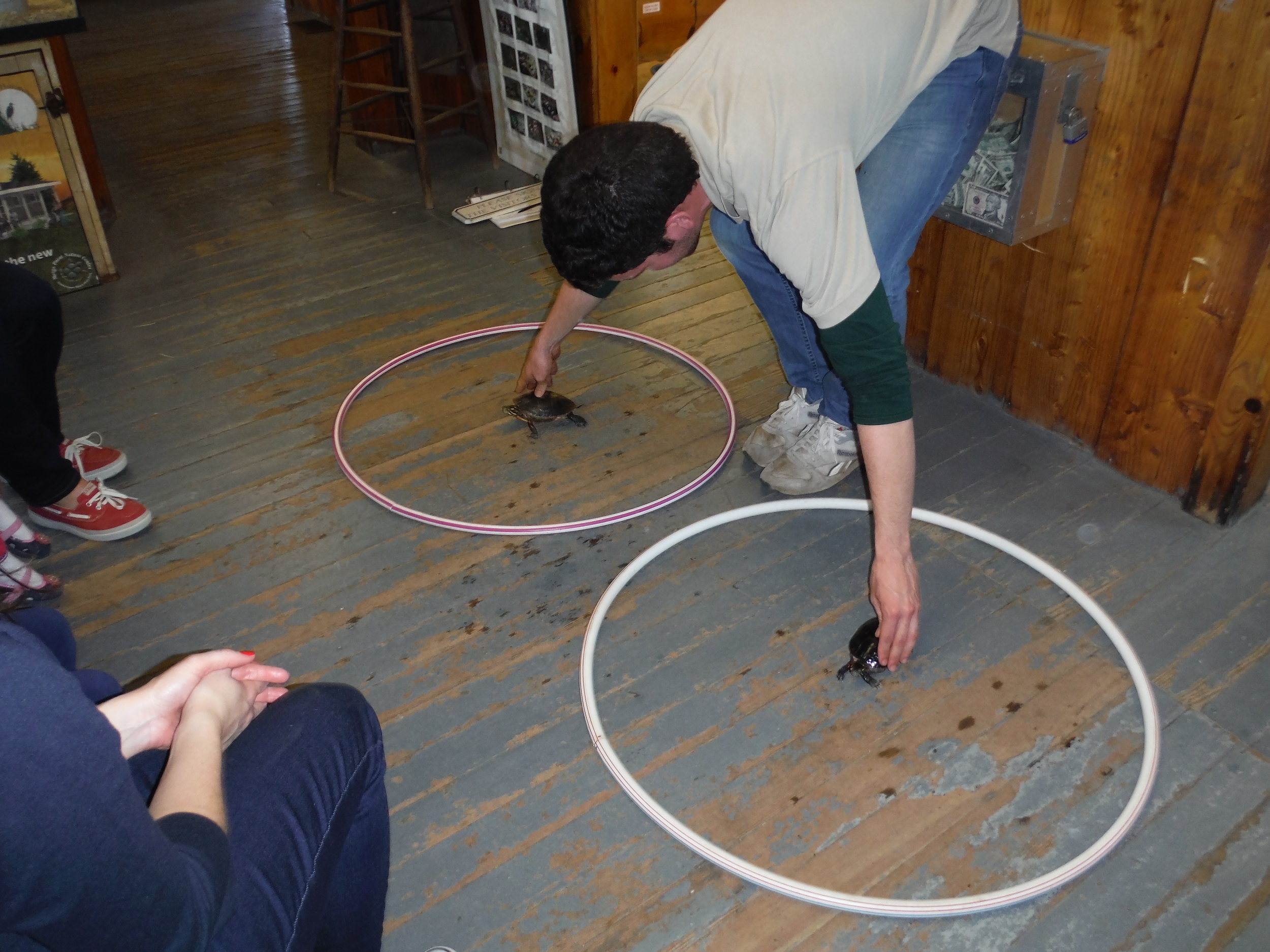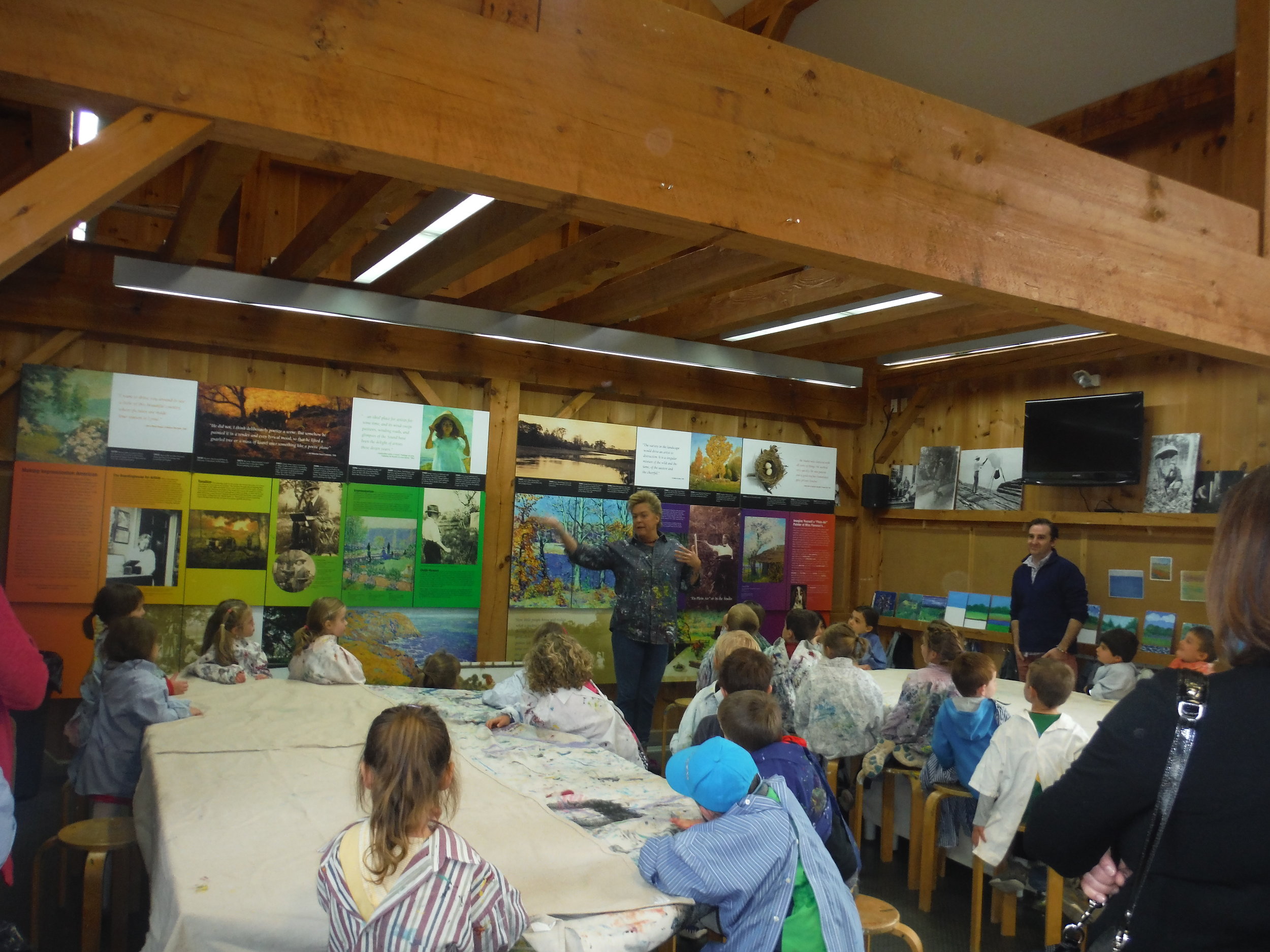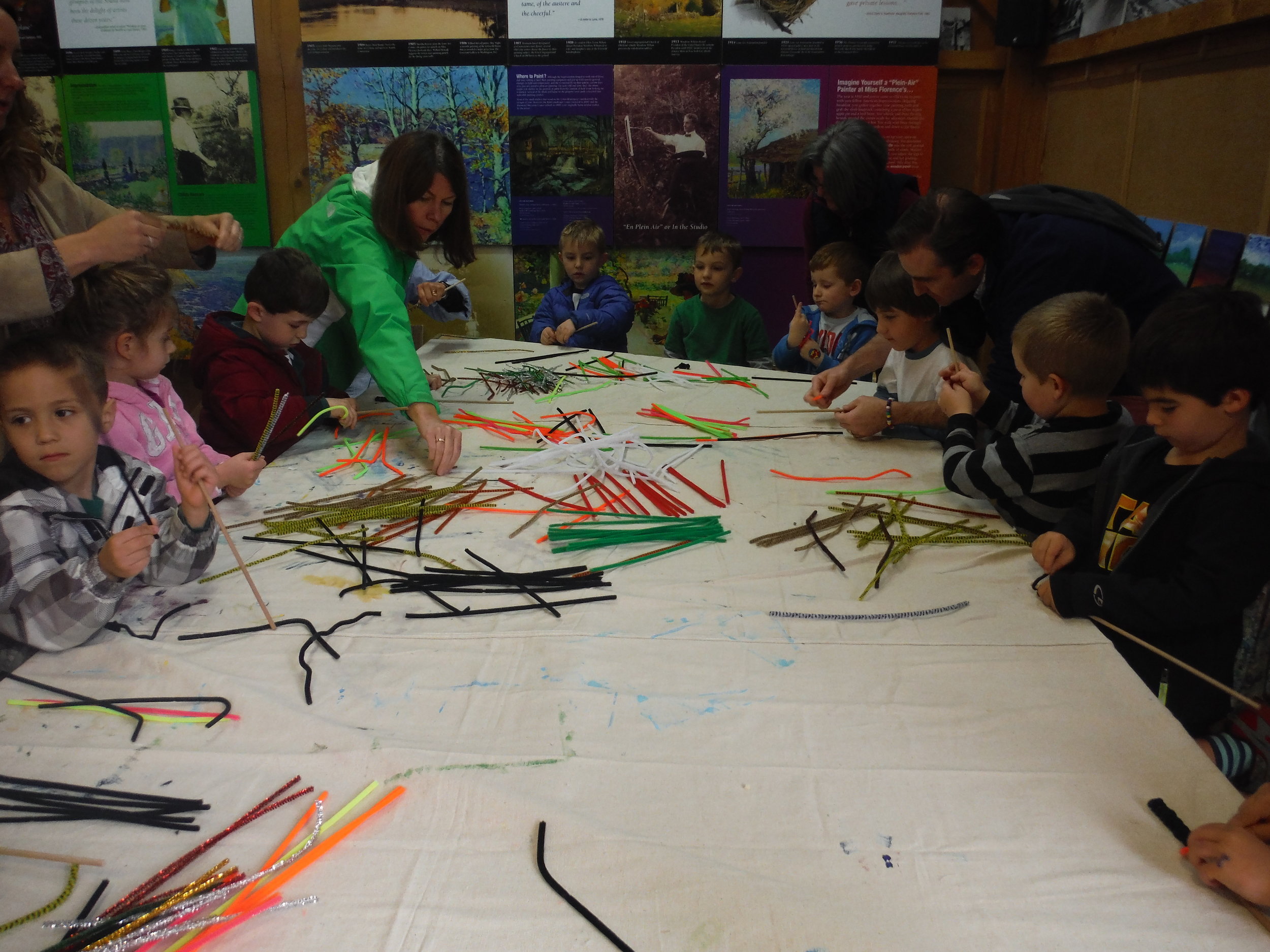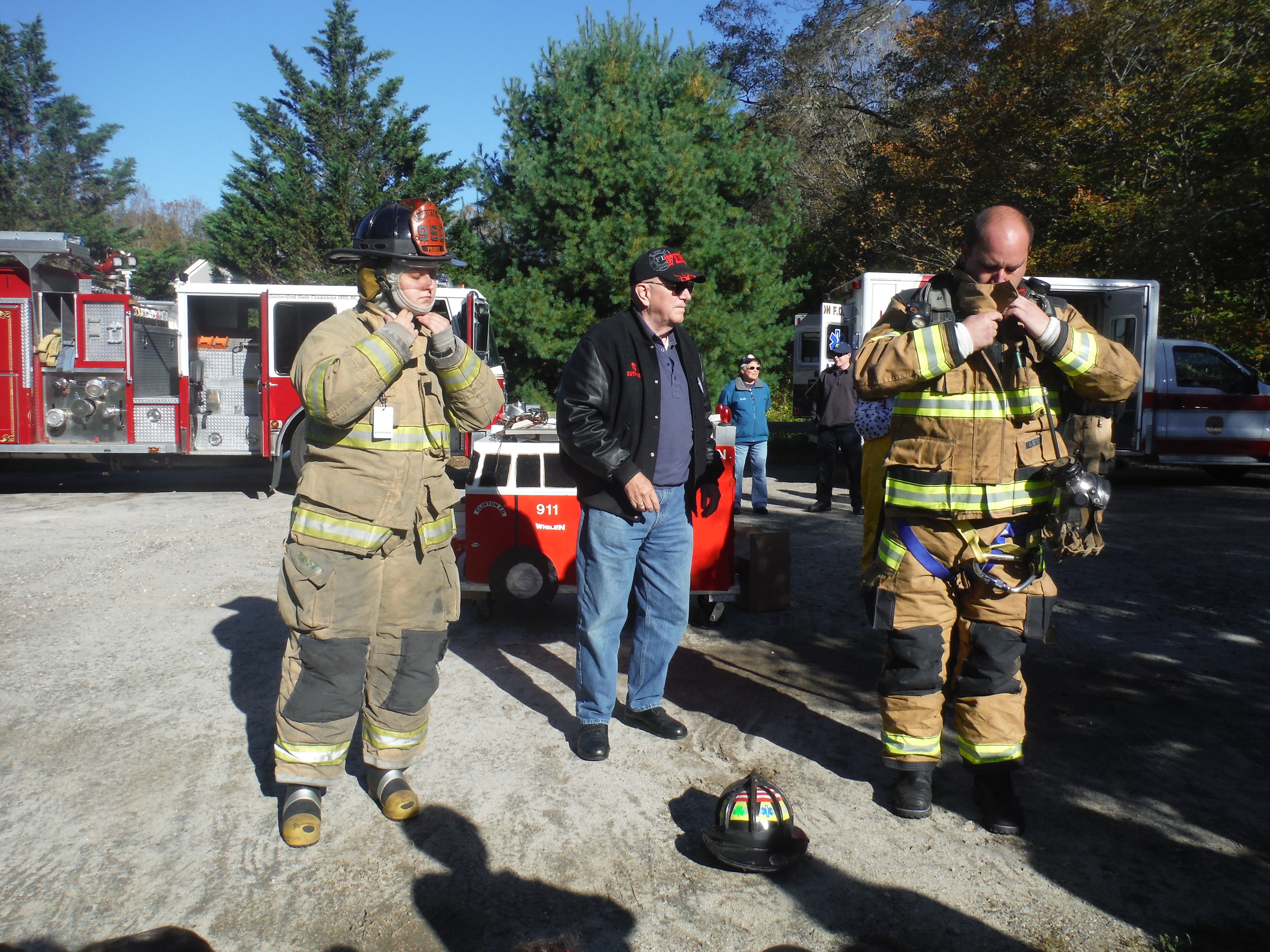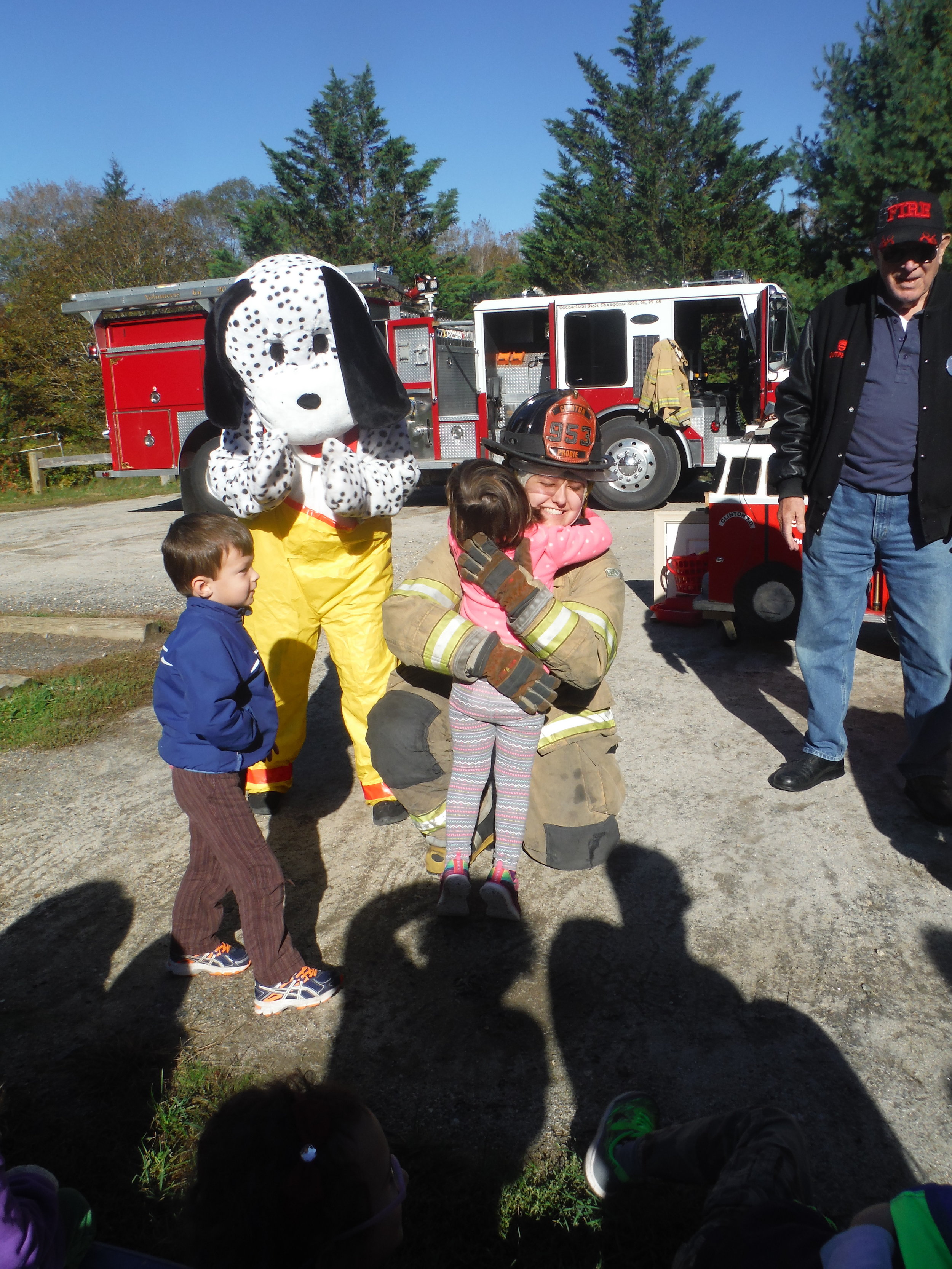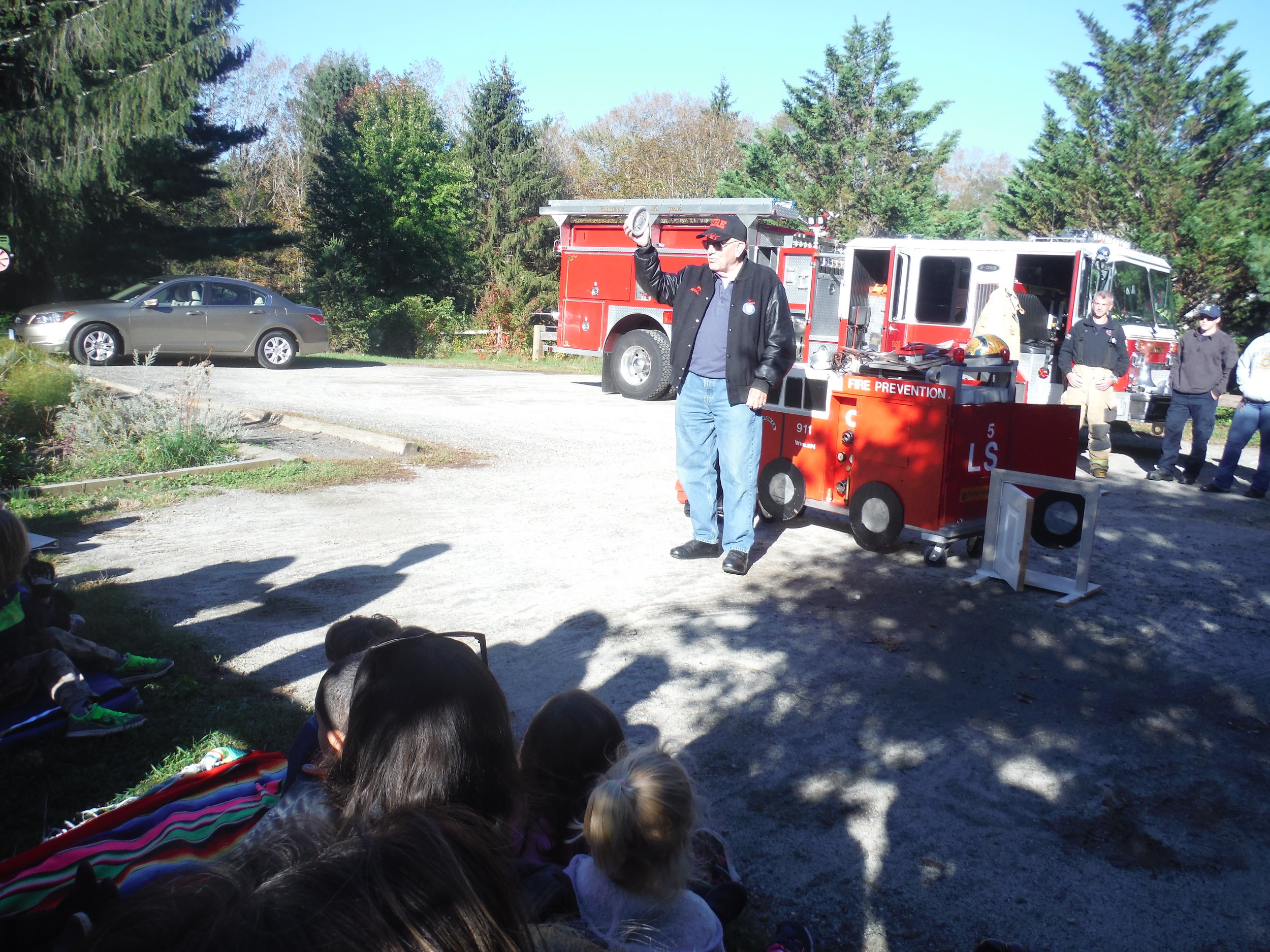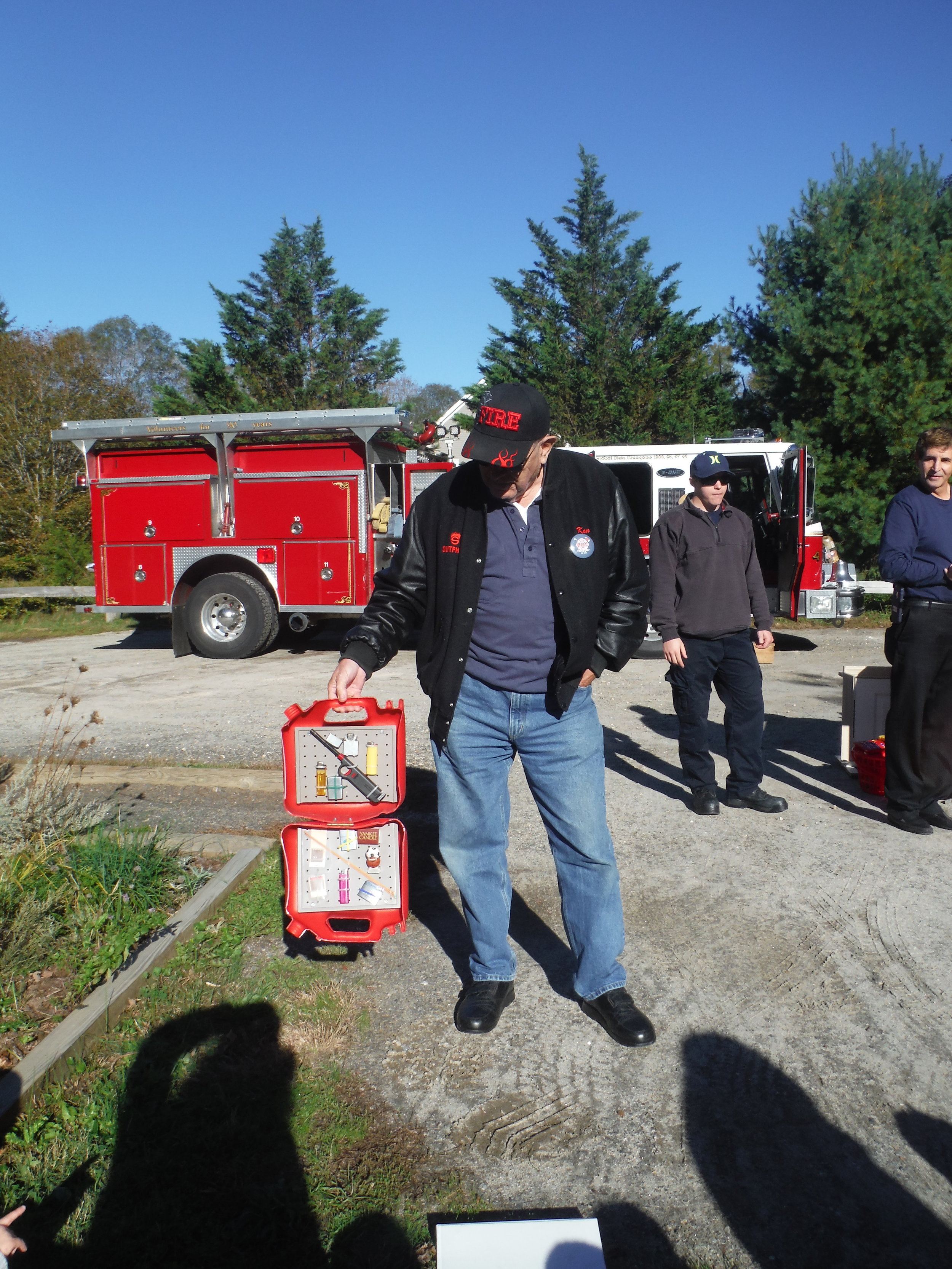Little Barn
Our three year and four year old program focuses on social and emotional skills along with gross and fine motor development. Language arts and literacy, mathematics, and science activities are also included, often disguised in various forms of play and free choice.
Activities in the Little Barn include:
Dramatic play; practice counting beads or blocks; learning about people, plants and animals; participating in shared activities with peers; practicing balance, jumping and throwing; participating in family style dining during snack and lunch; and learning about patience and manners. Children begin to recognize print through identifying their names on their coat hook, participating in question of the day, using the job chart, graphing the weather, using the light switches, identifying faucet temperatures, "reading" books, being read to and recognizing the labeled play areas and bins.
Connecticut Early Learning and Development Standards:
Our program focuses on your three and four year-old child’s primary areas of development. Scroll over the standards below to learn more.
Communication entails more than just speaking words; it’s expressing thoughts, wants, and needs in an effective manner. This also involves listening and understanding what others are saying. Children are offered many opportunities to express their thoughts and opinions with their friends and teachers.

Cognitive skills, including problem solving and logical thinking, are a primary focus. Children will be encouraged to use their creativity, logic and reasoning when they encounter new tasks, such as building a city out of blocks or creating an animal habitat in the sensory table. Teachers read carefully selected children’s books throughout the day, encouraging the children participate in the story by predicting events, analyzing illustrations, answering questions and expressing opinions about the stories.

Our activities foster the children's independence, allowing them to become more confident in their abilities, and prompt them to play a responsible role in their classroom community.

Teachers work on math tasks with counting and sorting activities. Mathematical thinking is utilized in many different ways throughout the day. The use of puzzles, songs, counting mats used with play dough, matching exercises, cooking activities and board games are just some of the ways we encourage early mathematical discovery. Children will be introduced to number names, written numerals, recognition of quantity, sorting/classifying, measurement and identification of shapes.

Gross motor skills include jumping, kicking, throwing and catching a ball, pedaling and demonstrating balance. Children will be encouraged to participate in many favorite childhood games, such as parachute play, Animal Races, Simon Says, Red Light, Green Light, and Duck, Duck, Goose. Fine motor skills, which exercise the fingers, wrists and hands, are also a focus as this is a precursor to writing skills. Three year olds will enjoy strengthening their fine motor skills through painting with a variety of tools and surfaces, exploring the vast array of materials in the sensory table, sculpting with play dough and clay, accessing a variety of table top manipulatives, tearing paper and eventually scissoring.

Early scientific inquiry is one of the founding principles of our program. With a primary focus of respecting the earth and nature, our science curriculum provides many hands-on opportunities for children to explore animals, plants, sound, physics and topics pertaining to the body and health. There is always a themed collection , specimen, or activity in the classroom for the children to examine and touch, in both the indoor and outdoor classrooms. Our four acre campus includes a hiking trail, vegetable, flower and butterfly gardens, a pet rabbit and hamsters that help lead children to investigate and understand how living things interact with the environment and each other.
